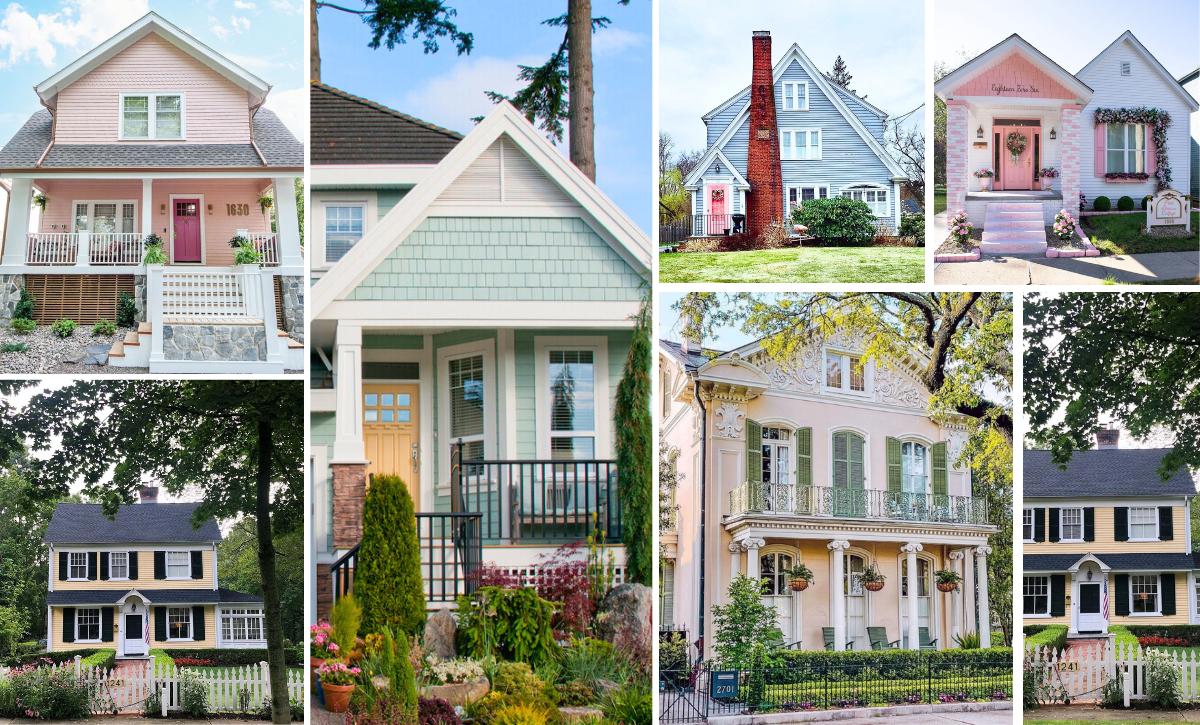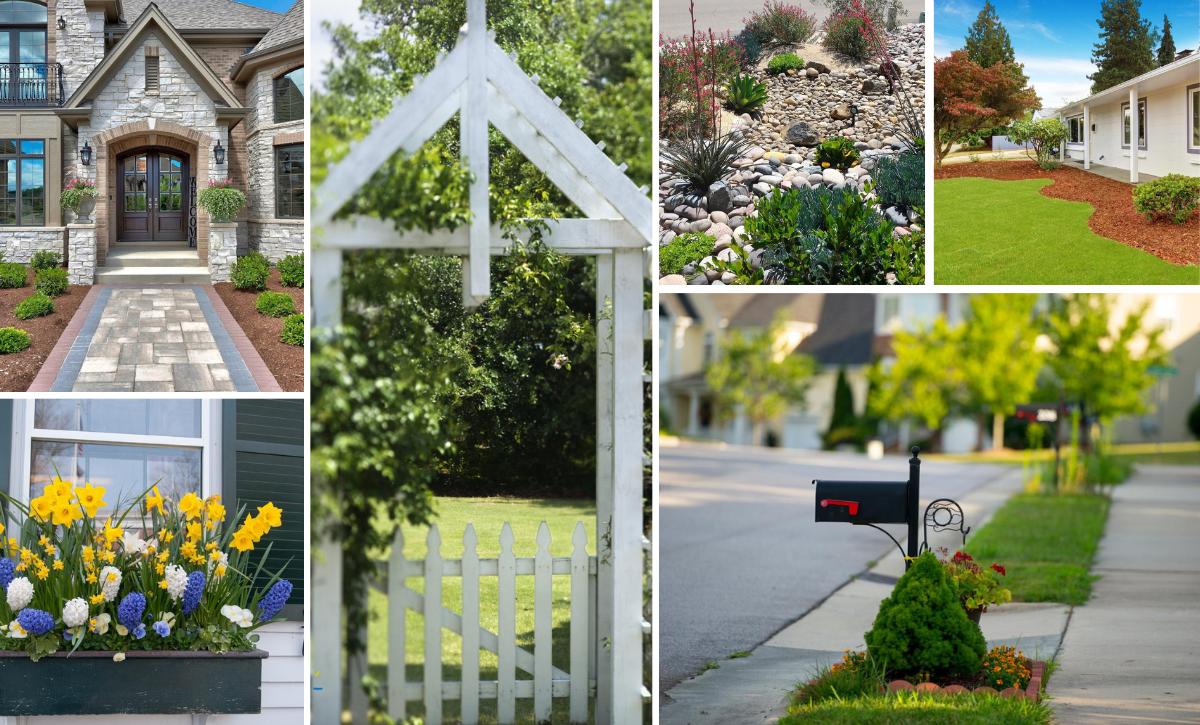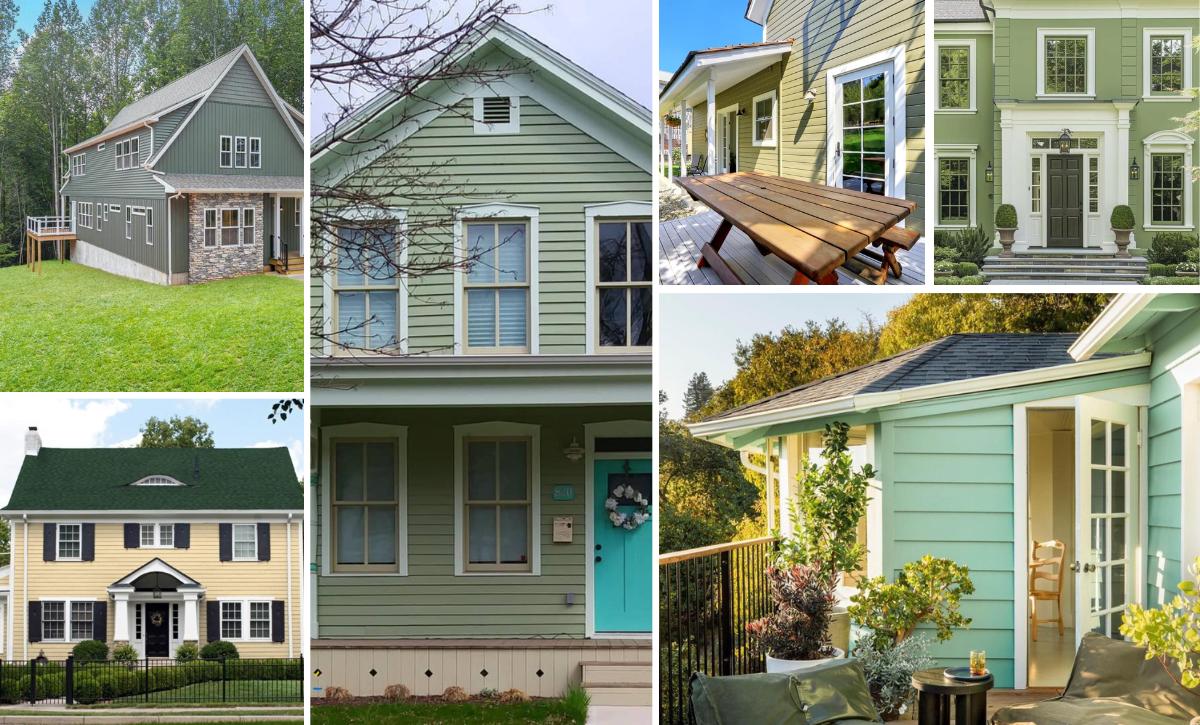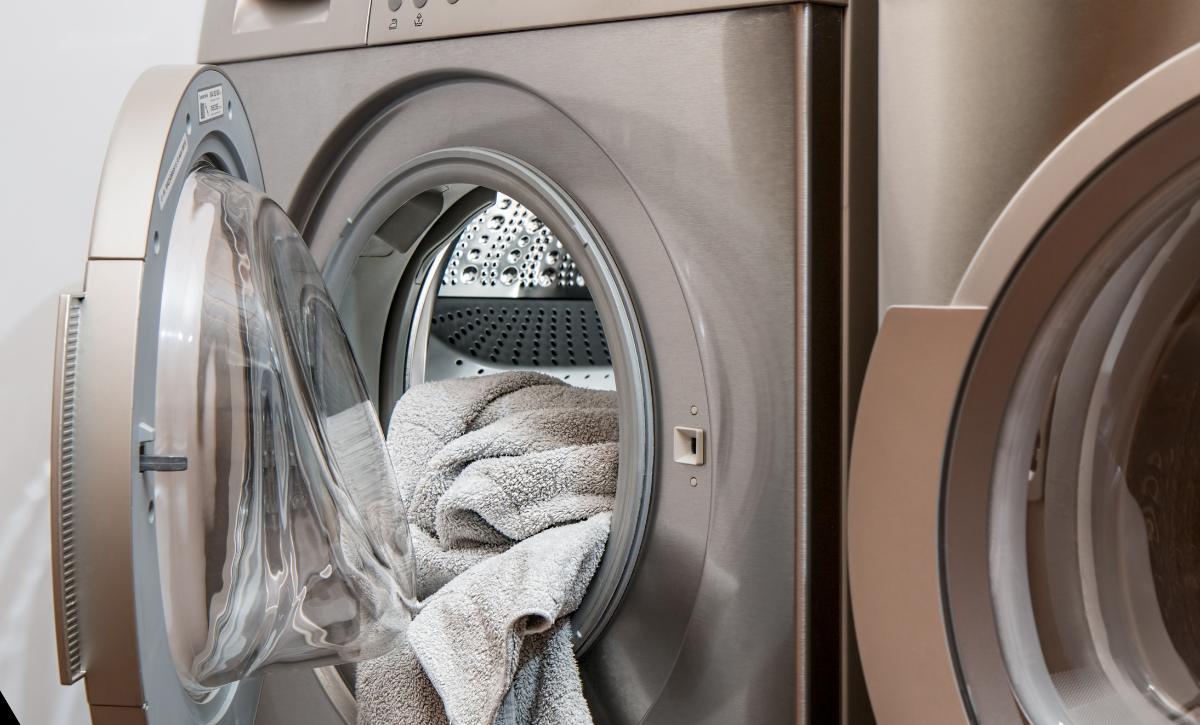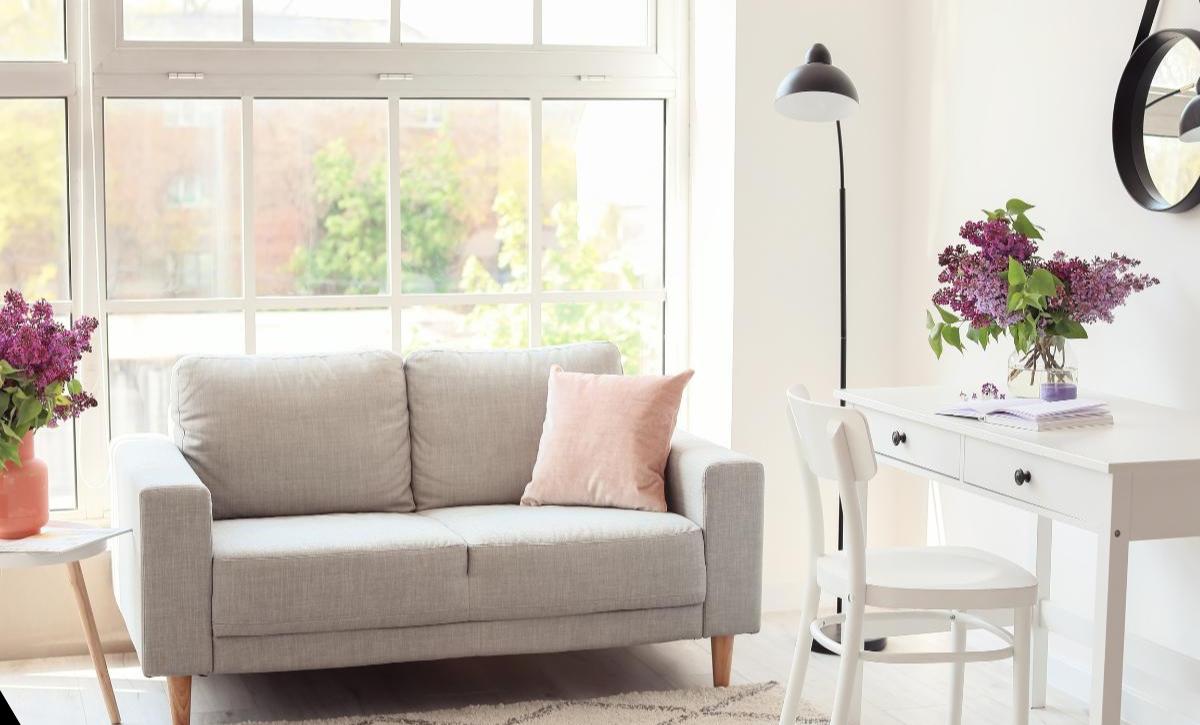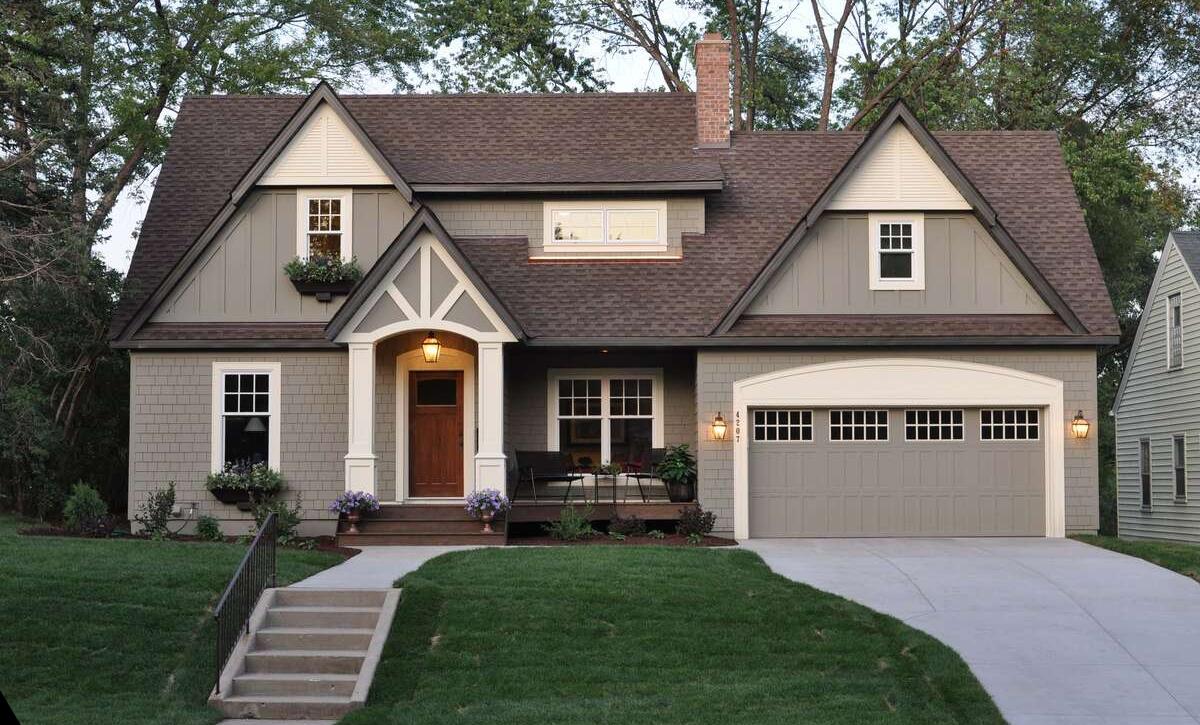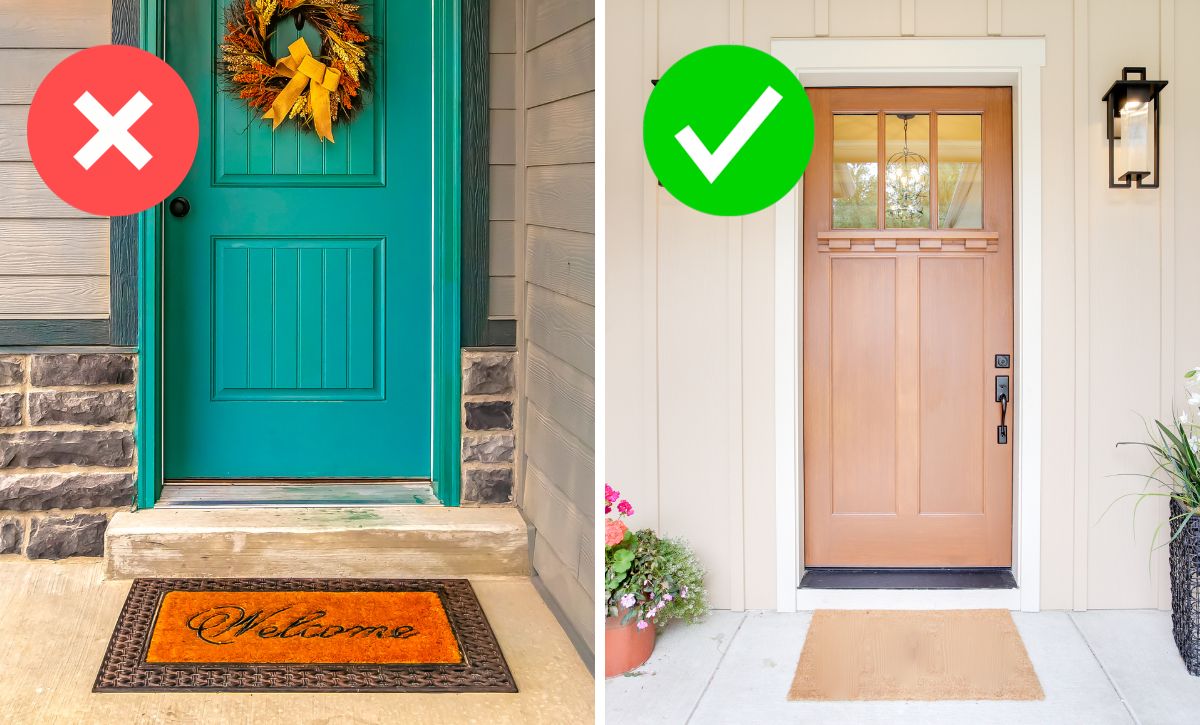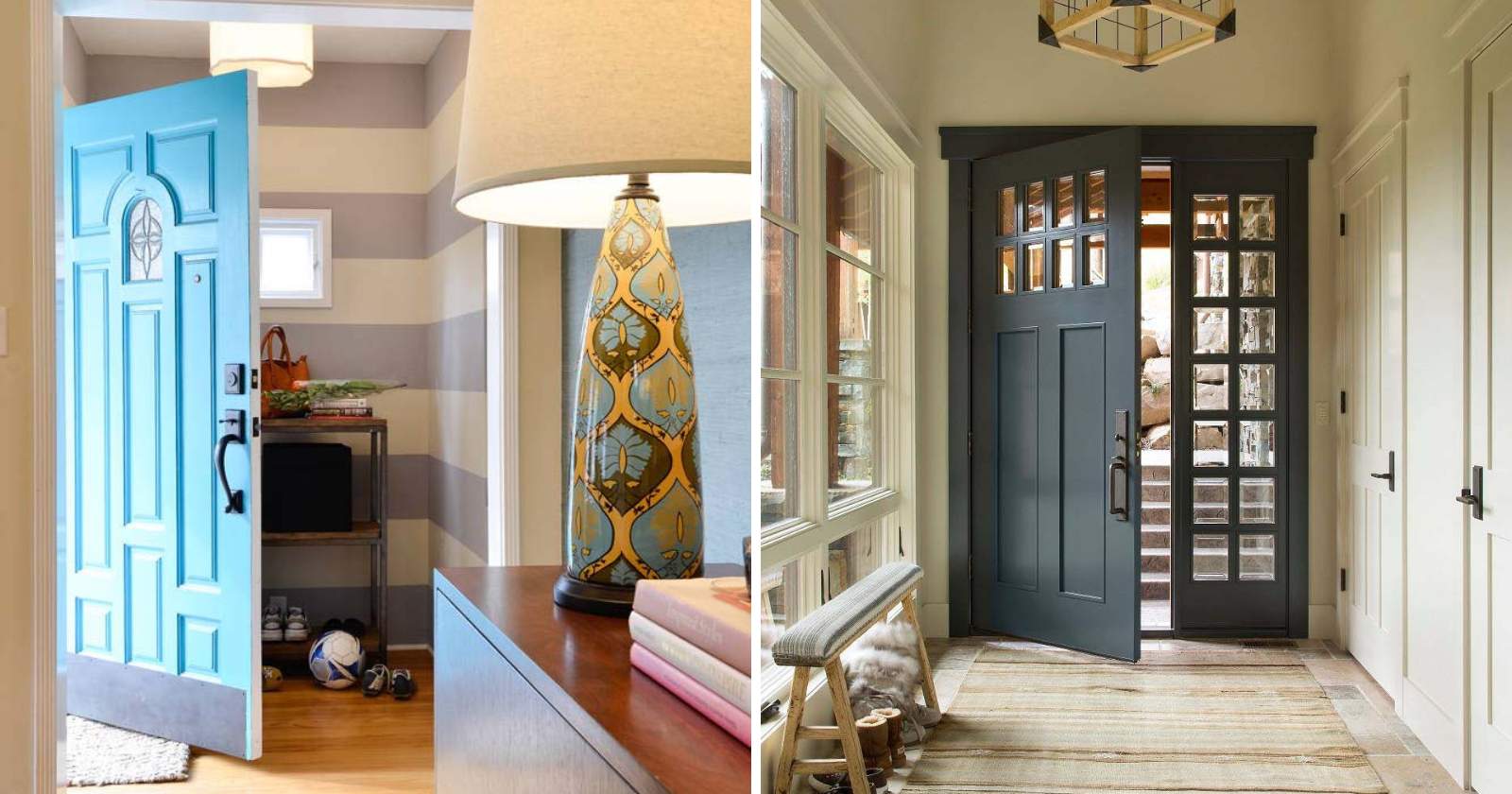You know that wainscoting your walls can tremendously change the look of a room.
But is that the right touch for your home? What are the pros & cons?
Can you do it alone or you will need to hire a professional? How much will it cost?
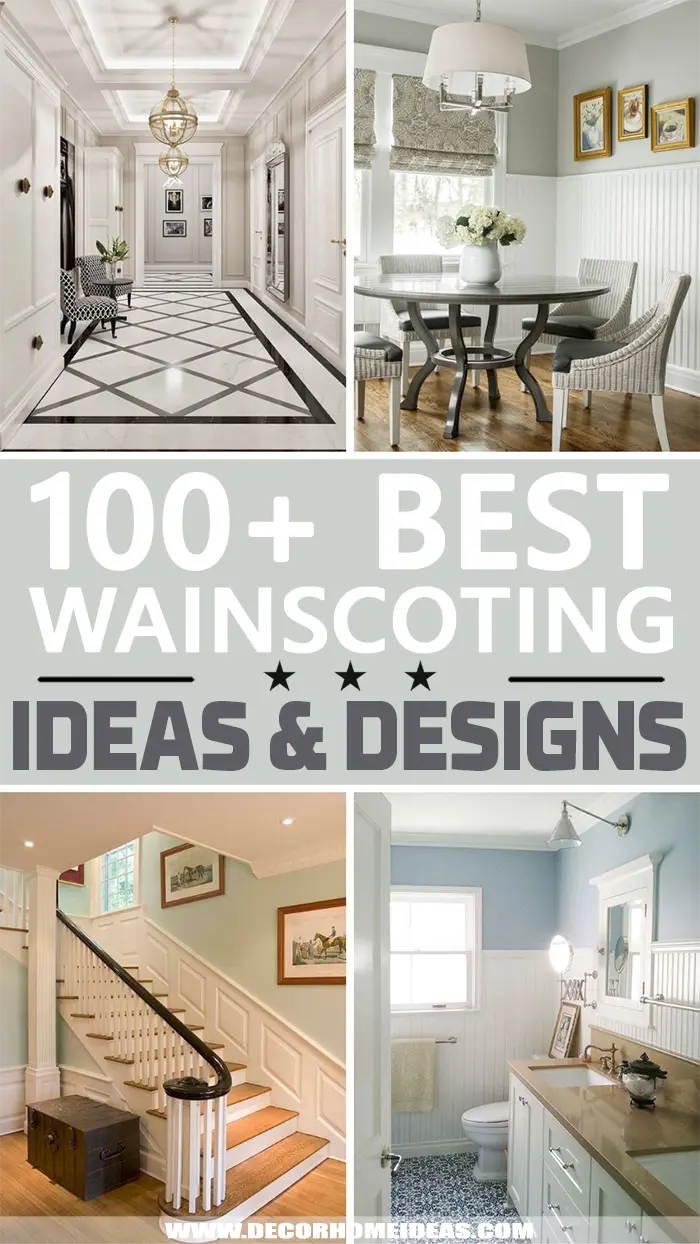
You have so many questions, but we know the answers, so let’s start from the beginning.
- What is wainscoting?
Wainscoting (or paneling) is a type of wall covering, which is nowadays mostly used for decorative purposes enhancing an interior space with architectural detail.
Wainscoting was originally used for two main purposes: to insulate the coldness of stone walls in ancient buildings and to prevent moisture.
That is no longer the case, and over the years the purposes and materials used have evolved a lot.
- What material is used for wainscoting?
In the 18th century Europe the preferred material was light oak wood, but now it ranges from different types of wood all the way to plastic and fibreboard.
A very popular paneling material is – Medium-density fibreboard (MDF) engineered wood as it is denser than plywood and is easy to work with.
Pros & Cons
Wall panels are chic and classy. Imagine posh apartments and cottage houses through the centuries.
Medieval houses had them, so did Georgian and Victorian rooms.
They were considered useful and fashionable through history and they spread all the way to America and European colonies abroad.
So paneling your home is a statement in classical style.
Wainscoting has two practical purposes as well: panels can hide wall imperfections, while still being both repairable and replaceable.
They can hide deformities, wires or cables, which stick out and even prevent moisture.
Additionally, wainscoting helps insulate the walls on the inside.
Even if you don’t have a moisture problem, your room can probably still use some sound dampening or thermal insulation to stay warm in winter.
On the other hand, panels do need maintenance, even more so than many types of walls.
Wood can rot, deform or lose moisture under specific circumstances.
Of course, wall panels can be repaired or even replaced, but homeowners should still take care of them – by making sure they are installed properly and not deformed by external factors, by painting them with the proper paint, or by waxing them in case the room conditions are too dry.
Another debatable negative side of wainscoting is being old-fashioned.
Just as some consider them classy, many would believe they don’t always match well with a cleaner minimalist modern look.
Our collection of more than 100+ ideas will show you that wainscoting could be very fashionable and modern-looking.
Price and materials
- How much does wainscoting cost?
Wainscoting can be cheap or expensive depending on who made it and what it is made of.
Normally its price ranges from 10 to 30 dollars per square foot.
Plywood is the cheapest and so can be wood, depending on the type of wood you use.
Wooden wainscoting is trickier to install, because it contracts and expands depending on temperatures/seasons, but carries extra elegance when you pick panels made of walnut or cherry.
Plastic and MDF (medium-density fibreboard) both cost approximately the same.
Both are not wood, but look well enough, and the main difference between the two is how they react to moisture: plastic handles moist conditions great, while MDF would usually break down, so it shouldn’t be used in a bathroom.
If you want the best wainscoting look, you can invest in natural wood and have it manually crafted and professionally installed to prevent deformation.
Types Of Wainscoting
There are a few types: flat and raised panels, beadboard and board and batten.
When we think of wainscoted walls, we normally imagine panels.
Beadboard
Beadboard wainscoting is an exception to this rule.
It consists of panes, installed next to each other vertically and separated by a narrow bead (ridge).
The panels used for wainscoting each consist of a frame (rails and stiles) with a flat panel inside it.
They can be flat (flat panel wainscoting) or raised (raised panel wainscoting).
The difference between the two types is not the frame, but only the panel itself.
Board and Batten
Board and batten wainscoting consists of alternating wider boards and narrower battens.
This style adds informality to wainscoting and is even popular for the exterior covering of structures.
The purpose of the battens is to give strength to the construction.
Wainscoting Height
- What is the proper height for wainscoting?
Wainscoting normally covers 1/3 of the wall.
Historically for many years, the accepted measurement was a chair’s height.
Modern architects often decide to change this either by inverting the rule and covering 2/3, by using the golden ratio (there are calculators online for that) or by matching the height of the windowsill.
Occasionally the wainscot could take over the entire wall, which is somewhat common in the hallway. Still, the 1/3 rule is still widely popular.
Simple DIY Wainscoting Method
Once you have chosen your preferred wainscoting style and purchased it, there is an easy way to DIY wainscoting for interior walls:
- clean the walls with a sponge or cloth, and a cleaning agent
- measure where the rails or battens should be installed
- measure where there may be an electricity socket and make a cut in the board or panel, which will cover it
- sand and prime the boards and panels if you feel like they need to be extra smooth
- place the panels or boards and make sure it all looks fine, now is the time to make slight adjustments
- put a ledge or ‘shelf’ on top if that is your preferred style
- paint using a brush, surfaces will probably be too narrow for you to use a roller
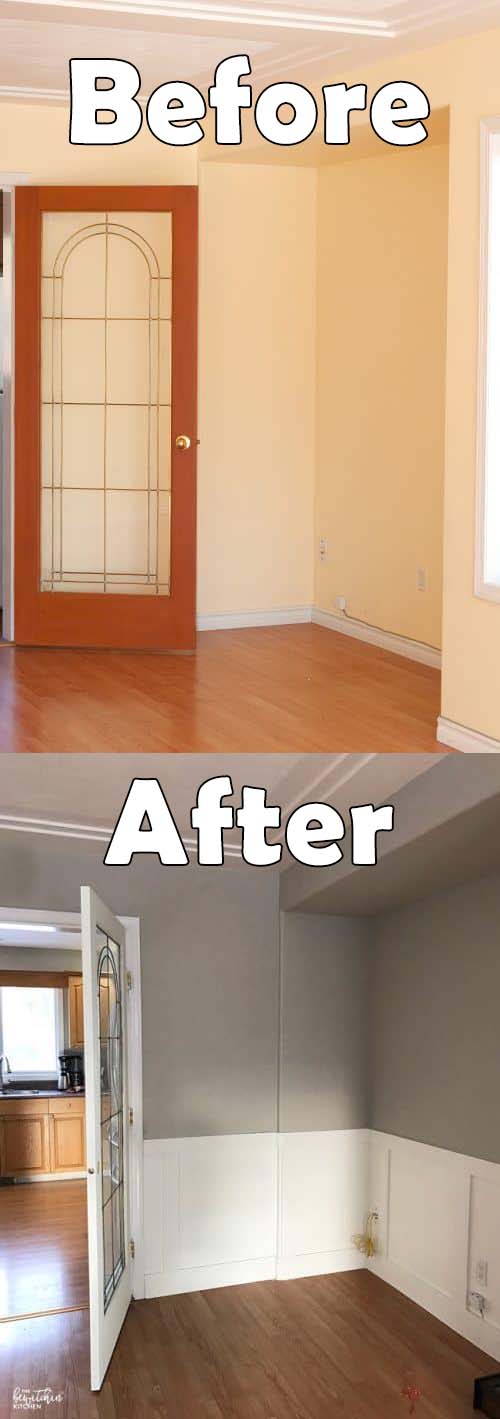
There is a great step by step tutorial on DIY wainscoting on thebewitchinkitchen.com
1. Bathroom Wainscoting Ideas
The beadboard in this bathroom is a simple solution to help create a peaceful look.
As you can see, the beadboard also protects the walls, which also allows for a more sophisticated look.
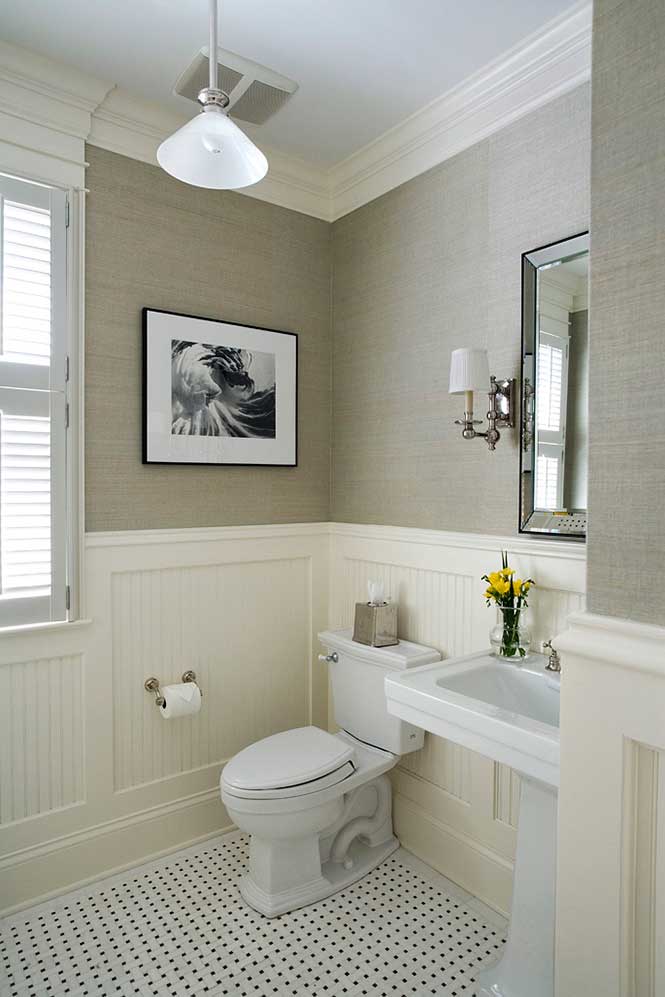
Bathrooms are paneled more commonly than other rooms in the house.
Here the wainscot complements some of the furniture to make this corner look like an old-world classic.
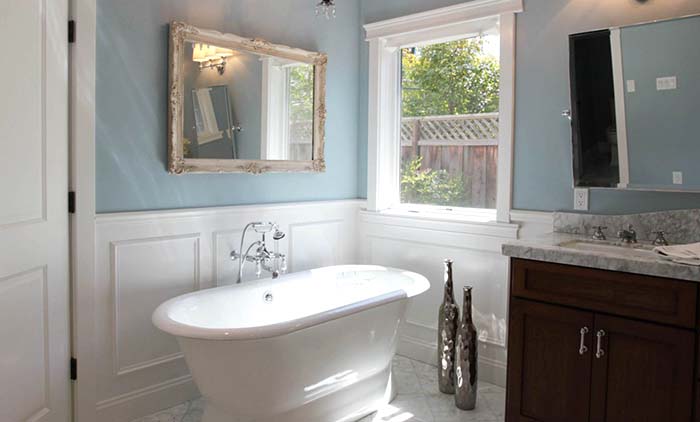
The simple color scheme in this bathroom shows that modern wainscoting ideas can go hand to hand with contemporary style.
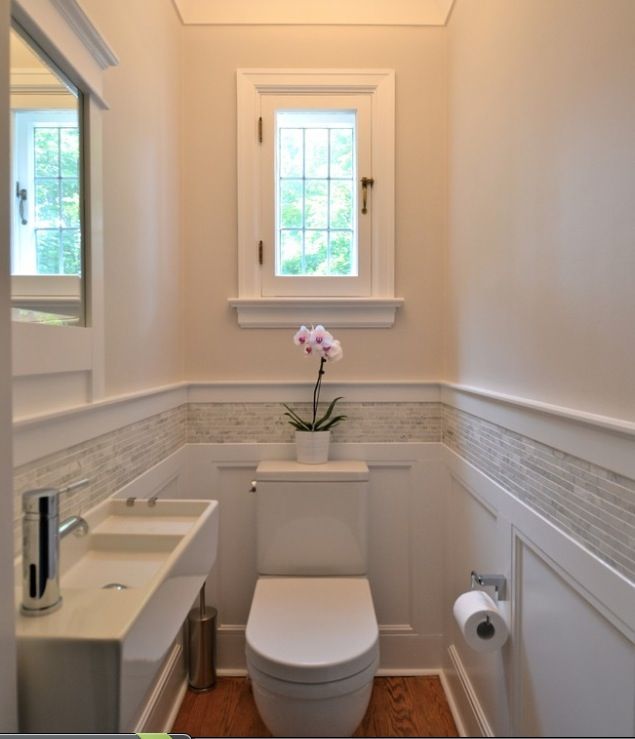
Flat panels in soft blue help match the bathroom with the style of the rest of the house.
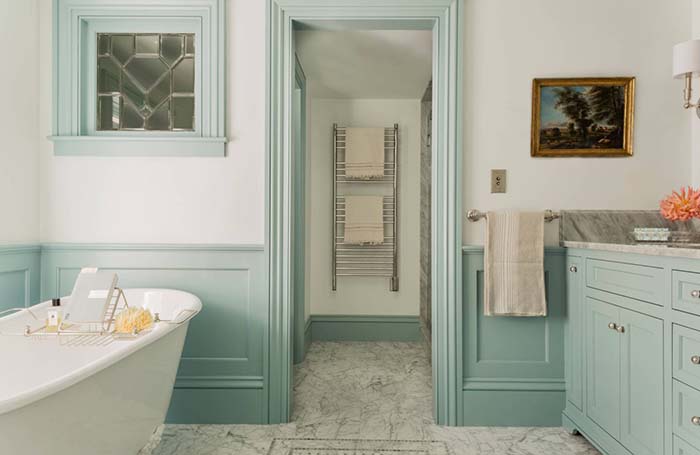
Beadboard is one of the easiest and most affordable ways to add color, or, as in this picture, balance the palette of a bathroom.
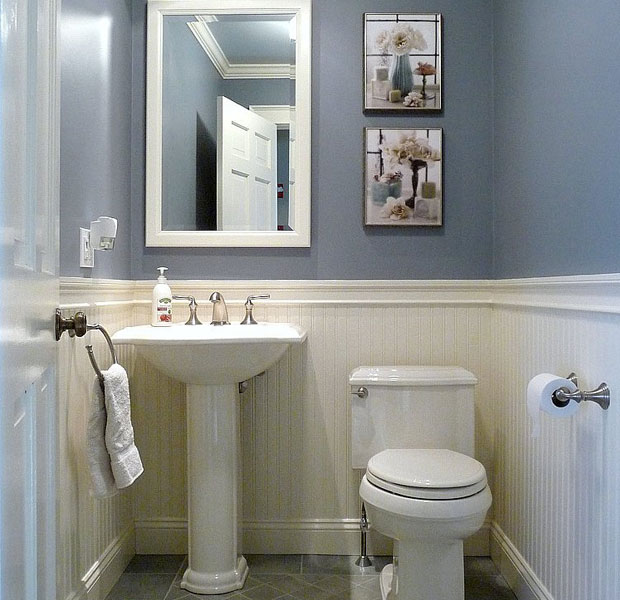
via generalcontractorshawaii.com
There is only one golden rule concerning the height of wainscots and it is: always go with what looks best for the room.
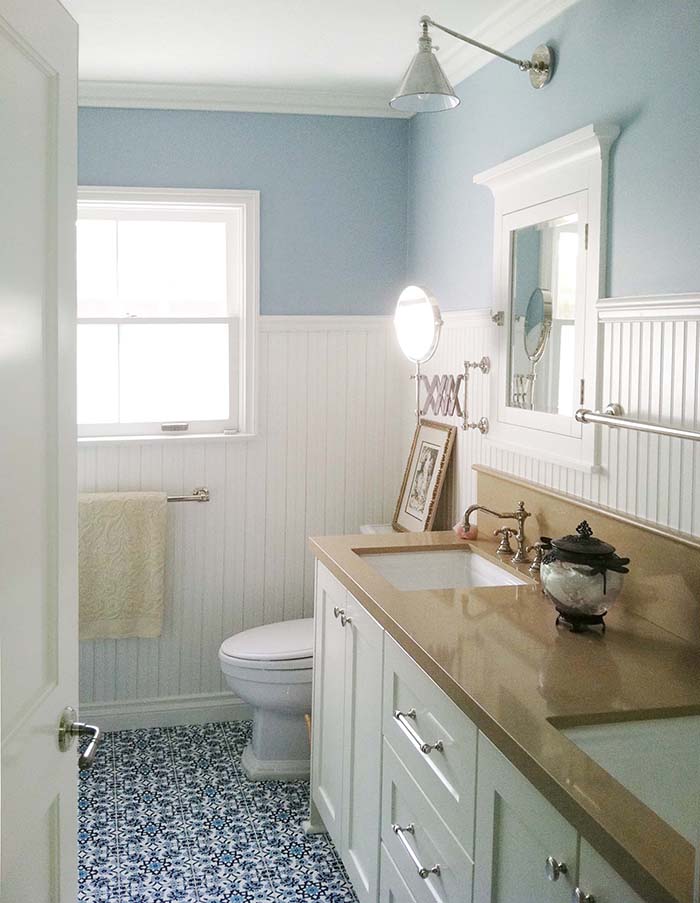
via cbistudio.com
Wainscot panel edges don’t have to show: go with a minimalist look for a minimalist home.
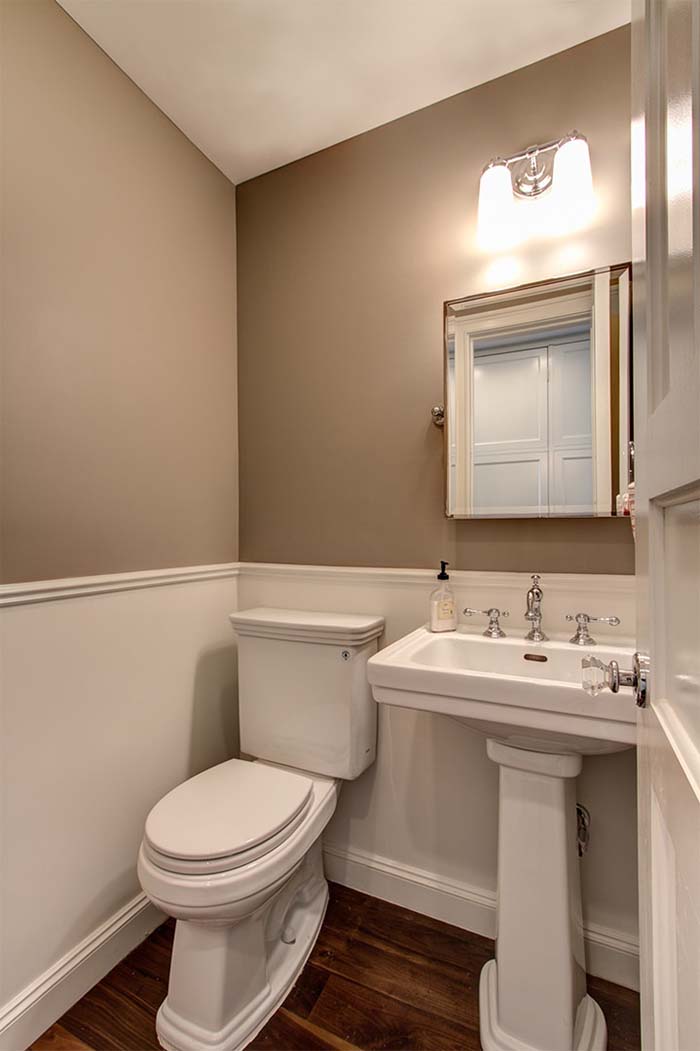
via herzogarch.com
Fancier panel frames will complement fancier furniture better.
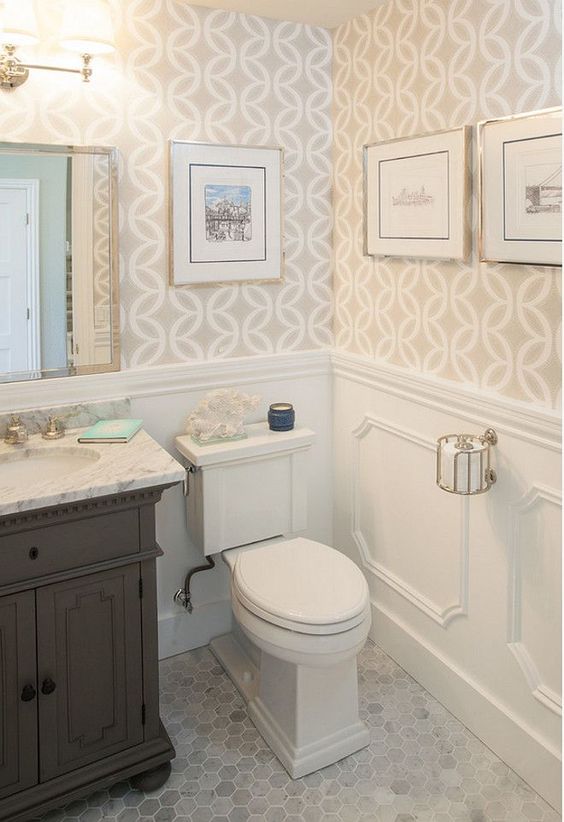
In this bathroom the paneling has the added benefit of dividing the space in two, giving an artistic feel to the walls.
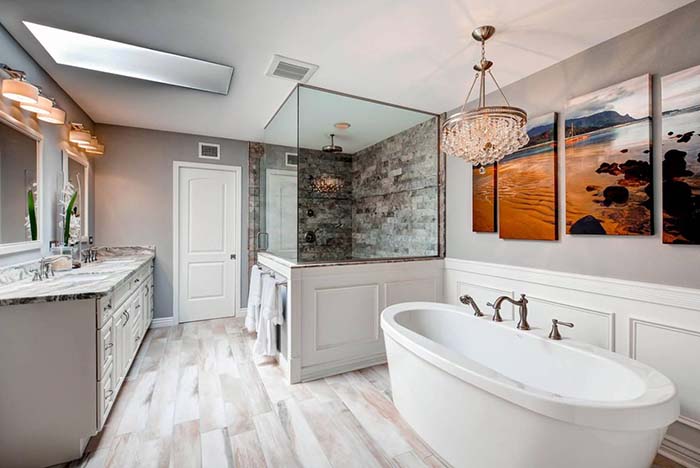
The shelves on top of wainscoting are much welcome in this seaside-styled bathroom.
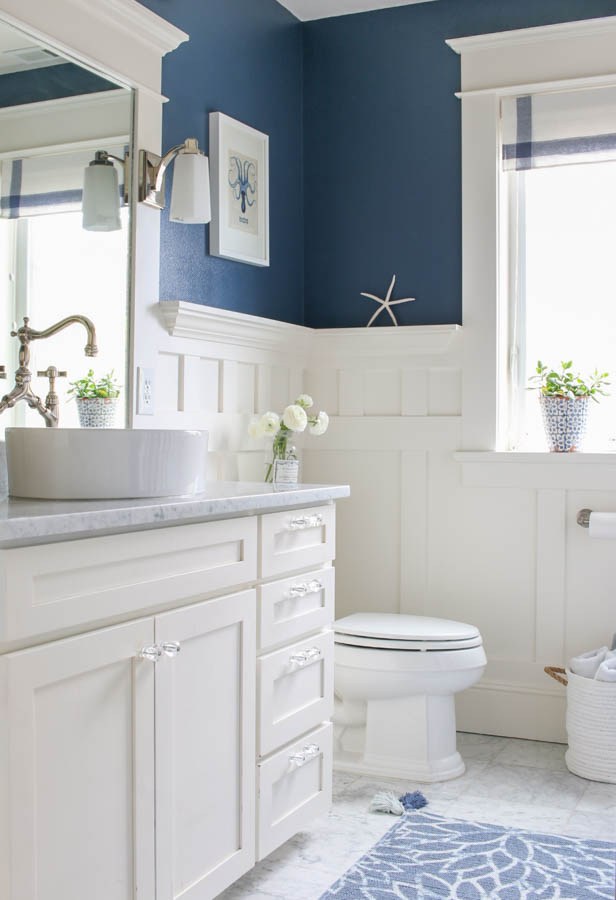
Masterfully rationed space between the bathroom vanity and wainscot at the bottom, and windows, mirrors and lamps over them.
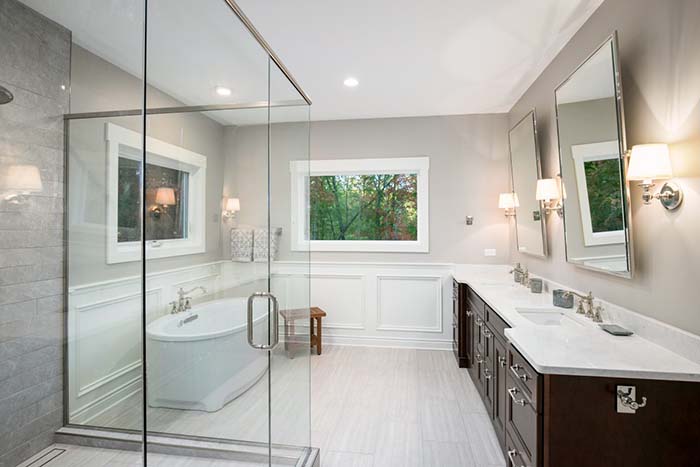
Most of the work on this bathroom has probably consistent of finding the perfect proportions for this pleasing look.
The mosaic type backsplash fits perfectly with the colors of wainscoting and walls.
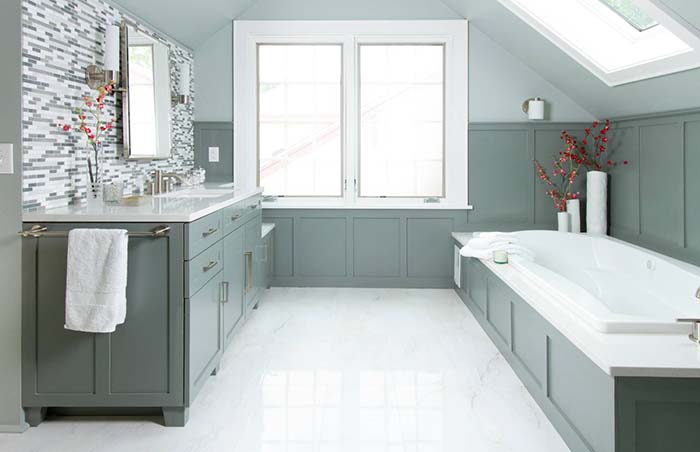
2. Dining Room Wainscoting Ideas
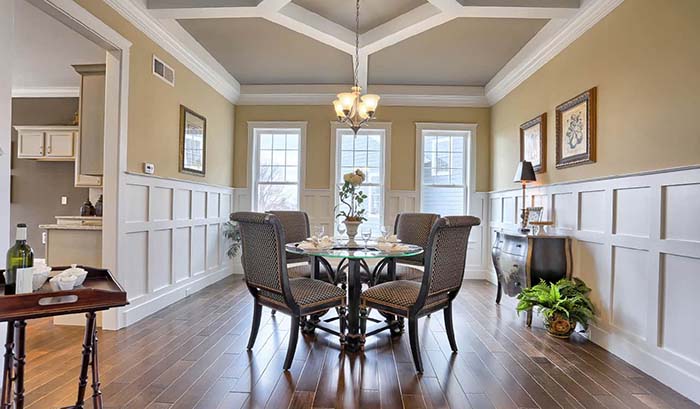
via ownalandmark.com
The geometric shapes on top work well with the window style and the panels.
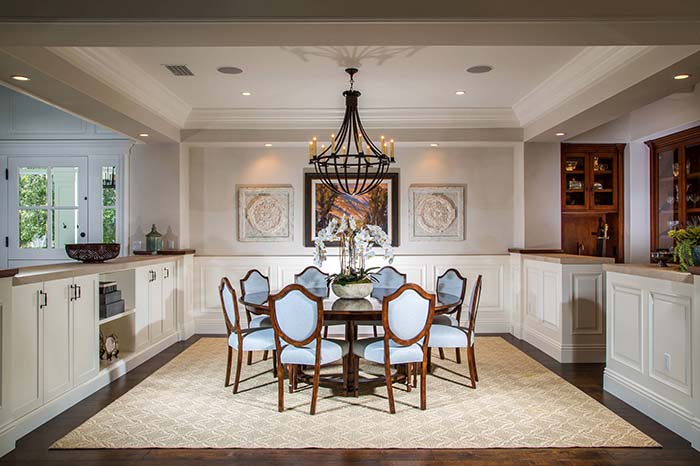
Paneling helps tighten up the space in this room and make it cozy even when not all eight chairs are taken.
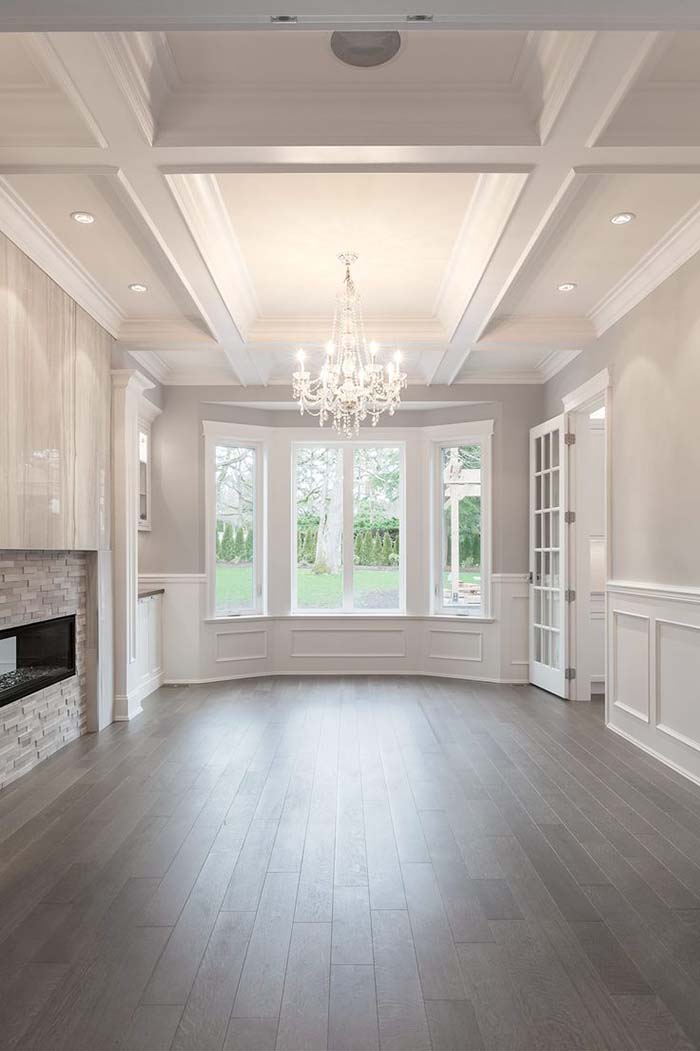
This room will make you feel like in a century-old Victorian home.
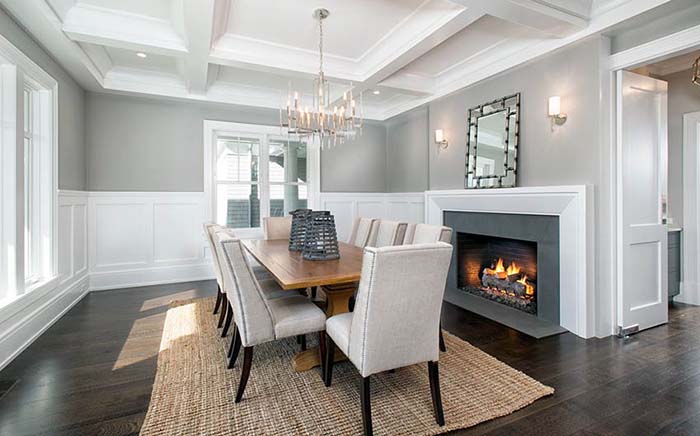
Dining room wainscoting ideas can only be benefited by a fireplace.
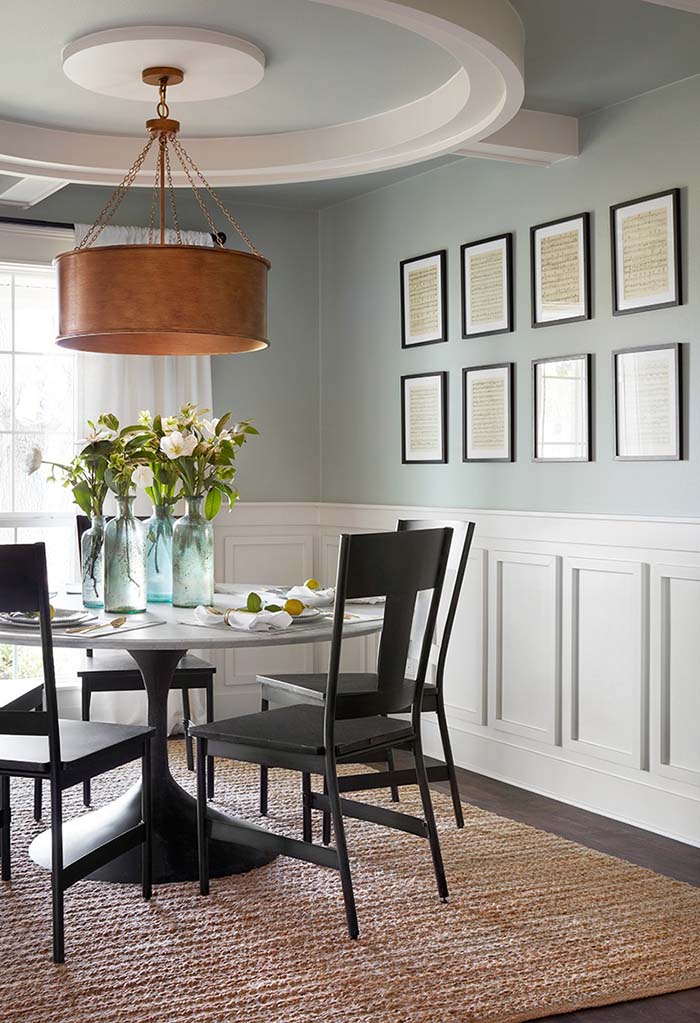
via magnolia.com
Circles and rectangles are combined in this vivid room for an exquisite interior design.
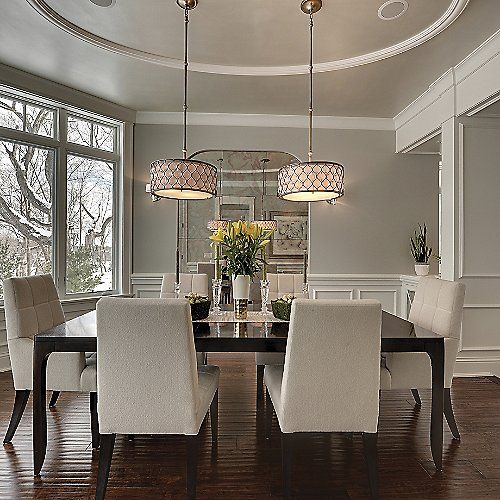
via lumens.com
Simple dining room wainscot designed for a room with plenty of light.
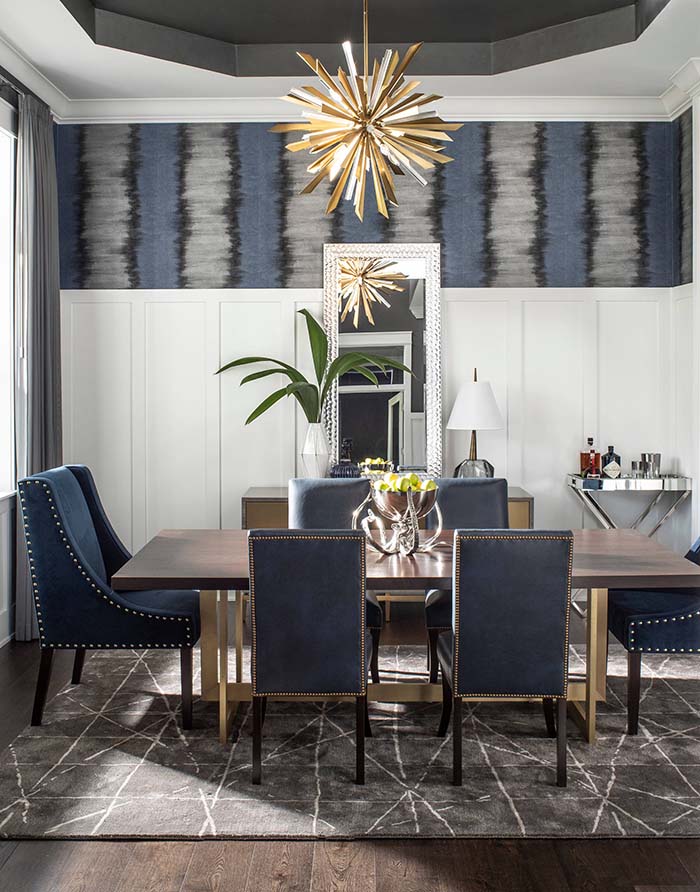
Wainscoting is not unusual for modern designs like in this naval colored dining room.
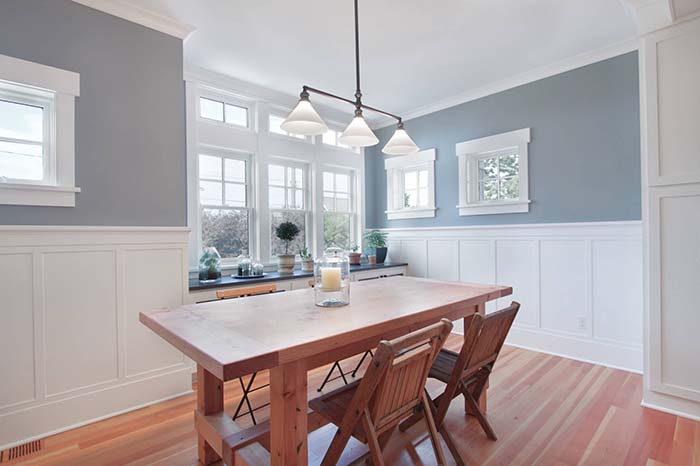
via firstlamp.net
This dining room relies on a modern but cozy atmosphere.
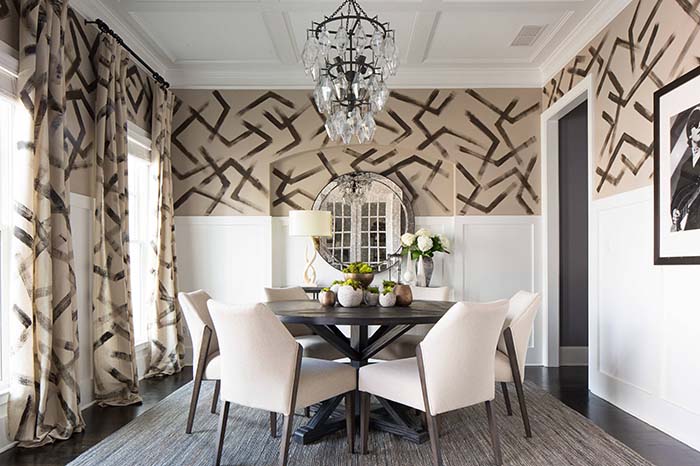
The stylishly bold style of this room is only enhanced by the negative space of the wainscoting.
Note how it also matches the ceiling and chairs.
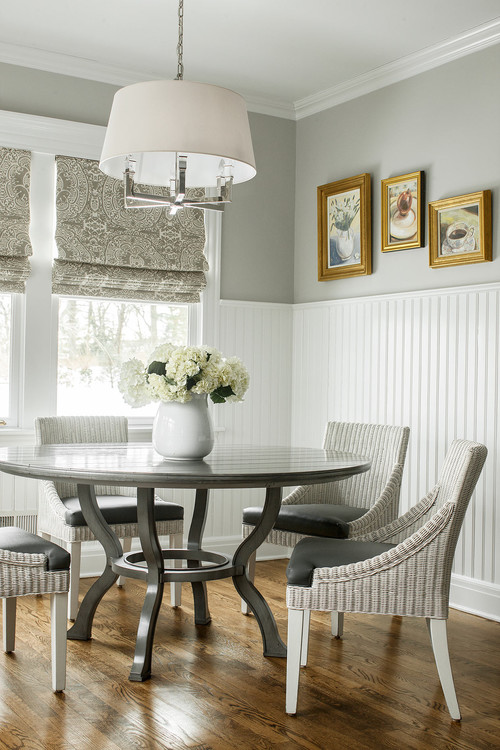
The wainscoting in this room matches the height of the windows and also draws attention towards the paintings high on the wall.
3. Staircase Wainscoting Ideas
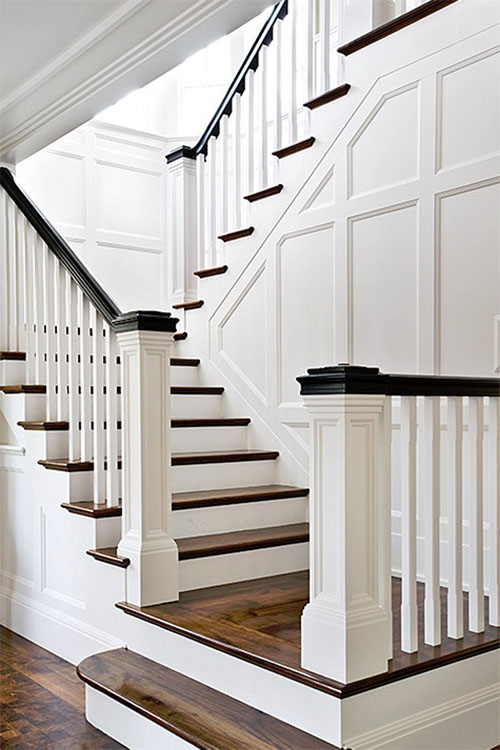
via trgarch.com
Wainscoting can provide an additional surface to let light in your home.
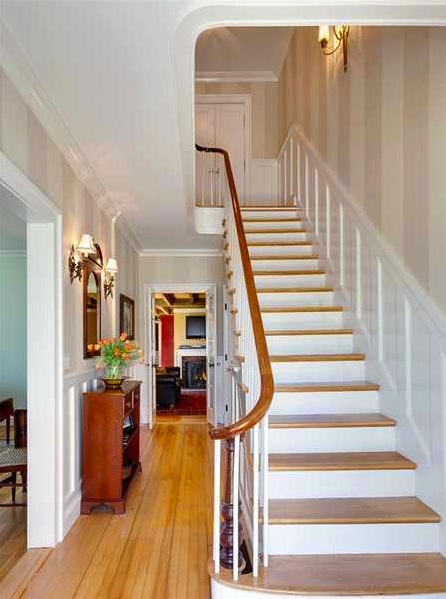
This interior designer combined stripes with vertical panels to create additional space in this hallway.
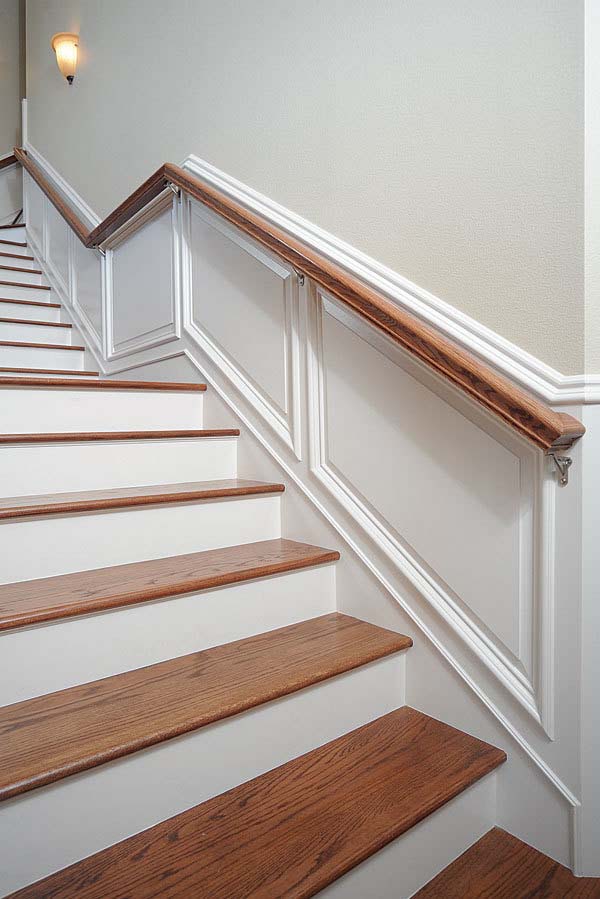
The rails loosely cover the edge of the wainscot to give the whole staircase a visually pleasing feel.
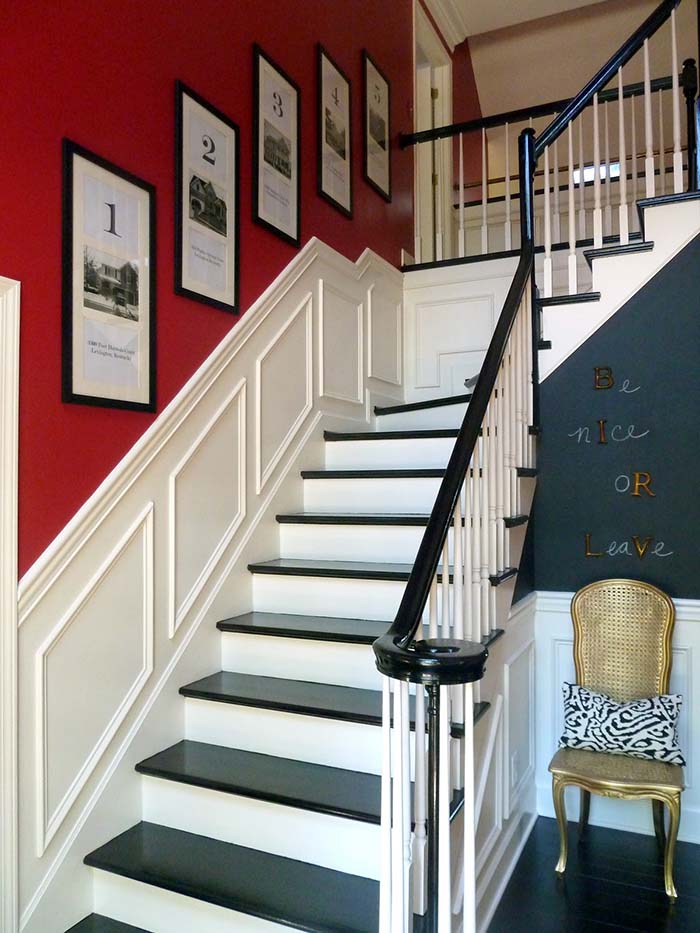
Many homeowners and designers decide to let the paneling complement the bold colors around it instead of letting it stand out.
This works out especially well if you weren’t shy of choosing a colorful palette for the rooms.
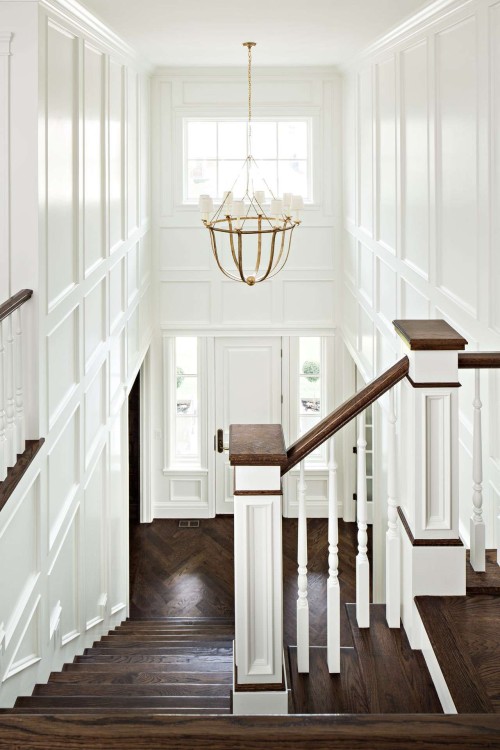
via thefoxgroup.com
More of a hall wainscoting than just a staircase one, this wainscot lets the hardwood floor take center stage.
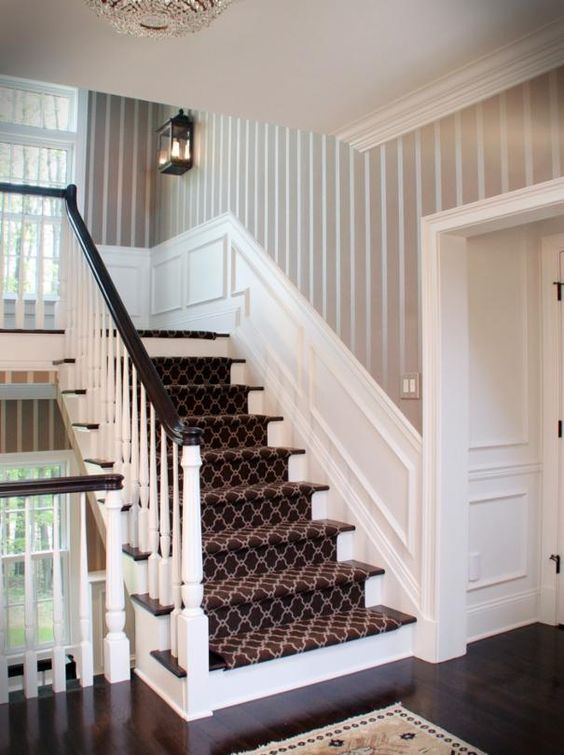
A pretty bold combination of several patterns makes this staircase look busy, but aesthetic.
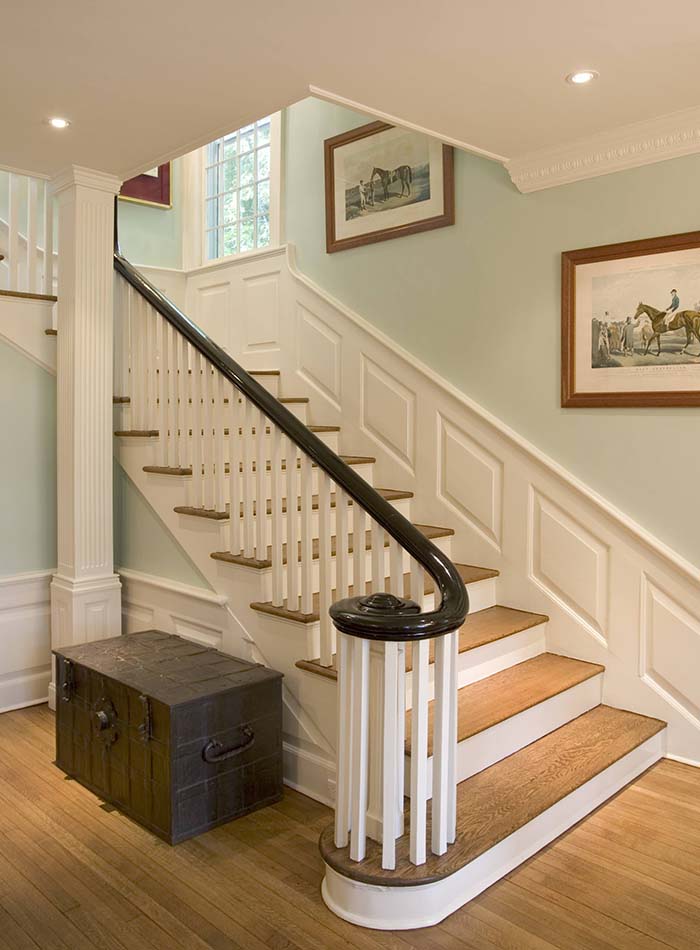
The owner of this home seemingly likes old-world furniture and imagery. The wainscoting here looks right in its place.
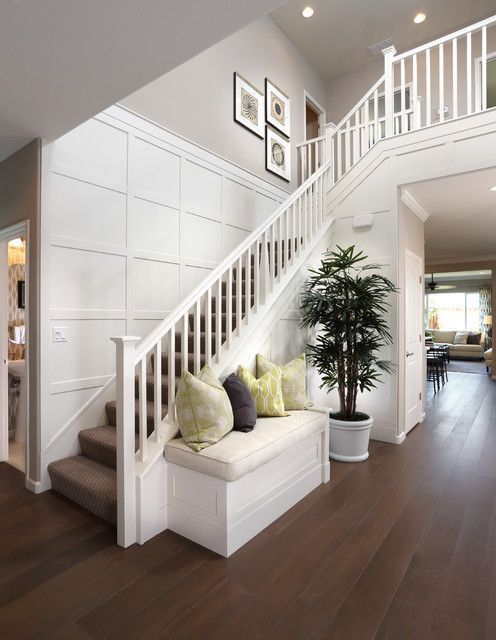
The paneling in this home sets a clear border between the spaces of the two floors.
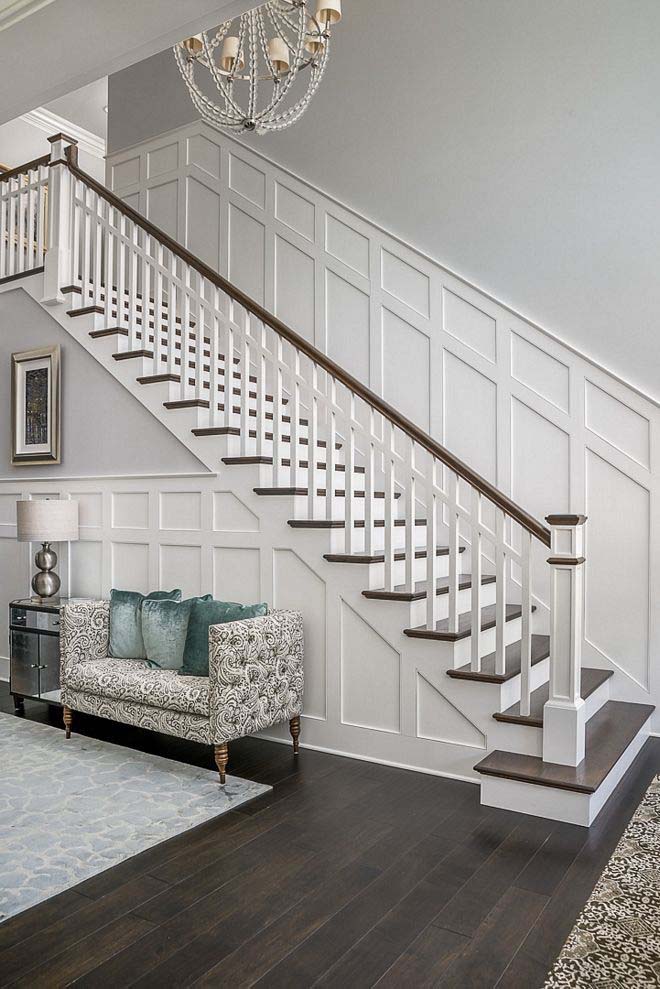
A modern geometric look goes well with the sharp look of the carpet and furniture downstairs.
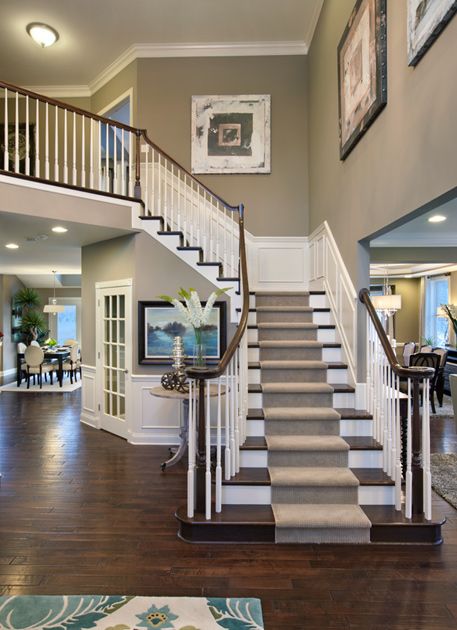
via tollbrothers.com
The wainscoting of this staircase comes as a natural continuation of the railing and makes the visual feel complete.
4. Kitchen Wainscoting Ideas
Although wainscoting is rarely used in kitchens for a number of reasons, we have several simple examples.
Kitchen islands, on the other hand, could be decorated with paneling and they look stunning.
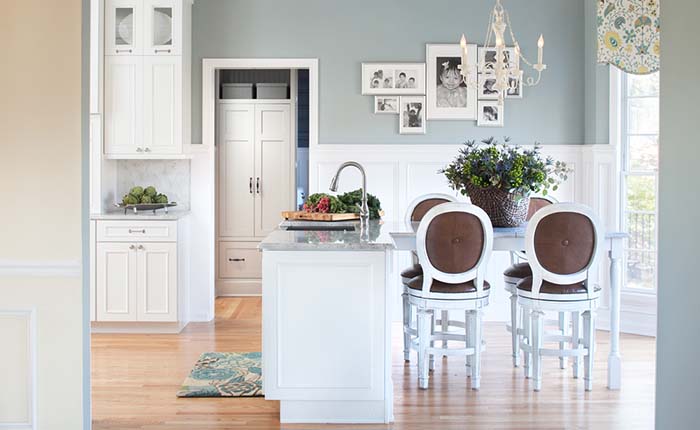
Taller wainscoting gives a sense of delicacy to all items in the room: from the chairs to the kitchen sink placed in the corner of the island.
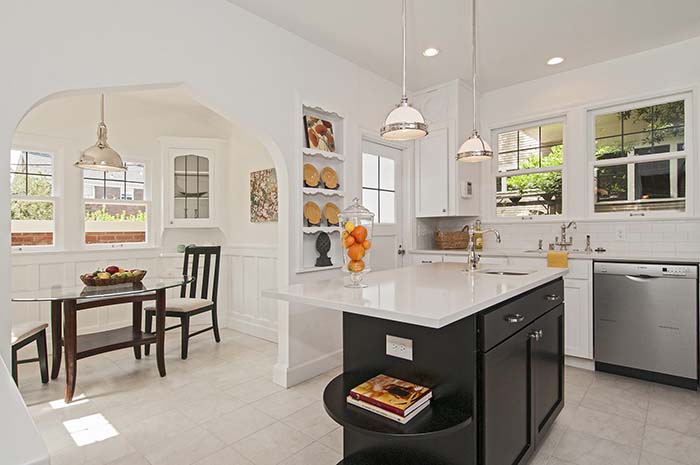
These walls wouldn’t stay snow white if the paneling of the same color didn’t protect them.
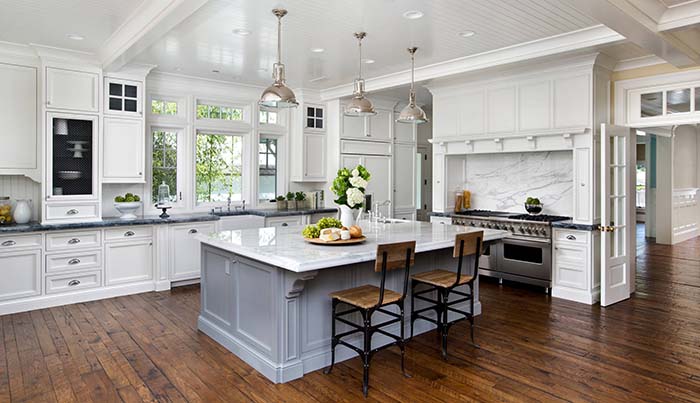
The accent of this stylish kitchen-dining room is actually the wooden floor.
The wainscoting purpose here is not to stand out and separate the wall, but actually to make the wall and the furniture blend so all attention would be drawn to the floor.
5. Bedroom Wainscoting Ideas
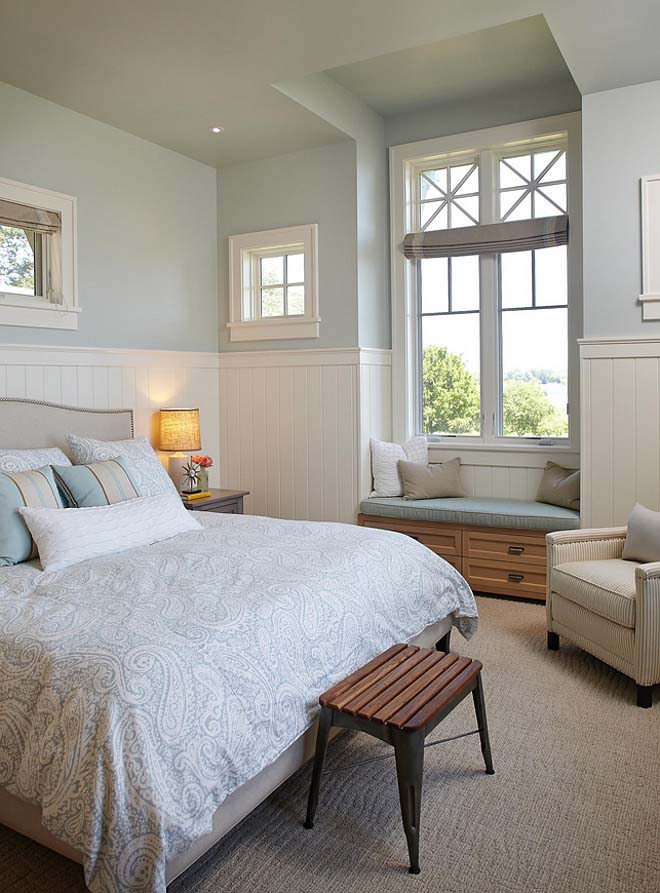
This room looks like it was specifically designed around that beautiful large window with a reading nook.
Wainscoting makes it even more cozier.
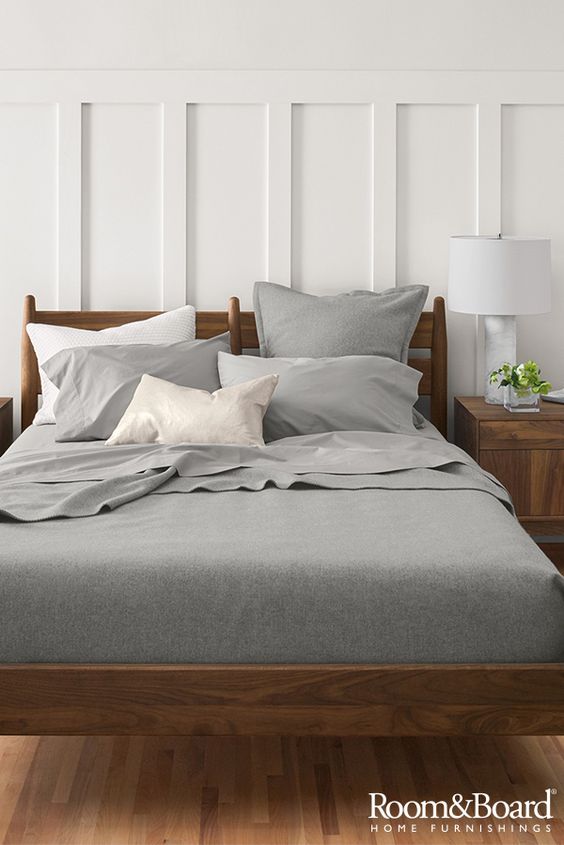
via roomandboard.com
This exceptionally tall wainscot goes just a little short of covering the entirety of the wall.
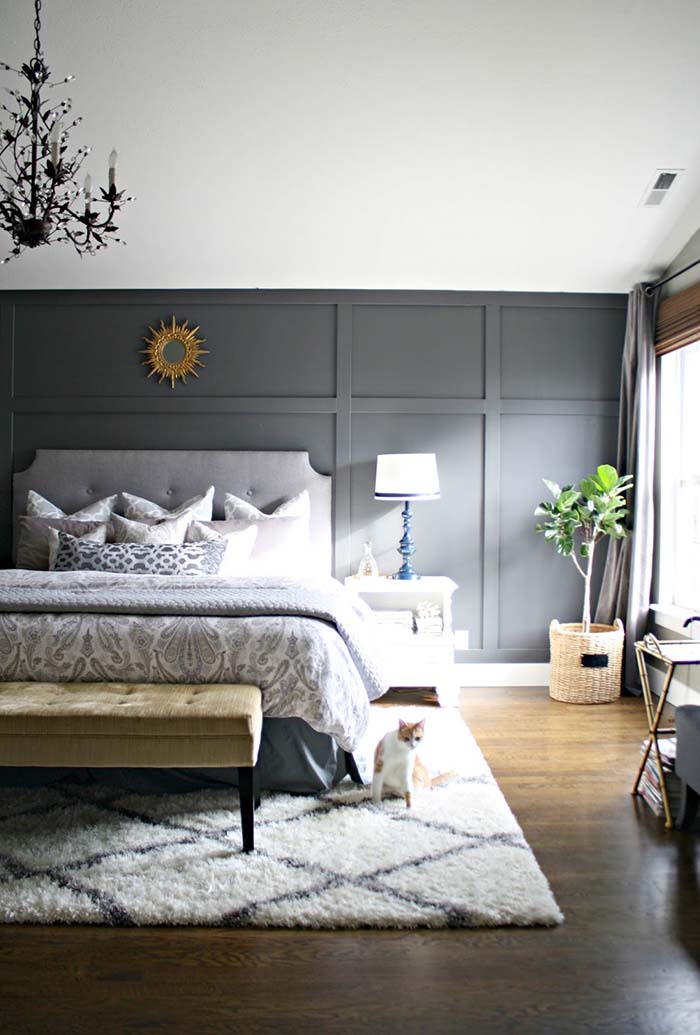
Different-sized and -shaped flat panels on this wall create a tidy, but in no sense a boring look.
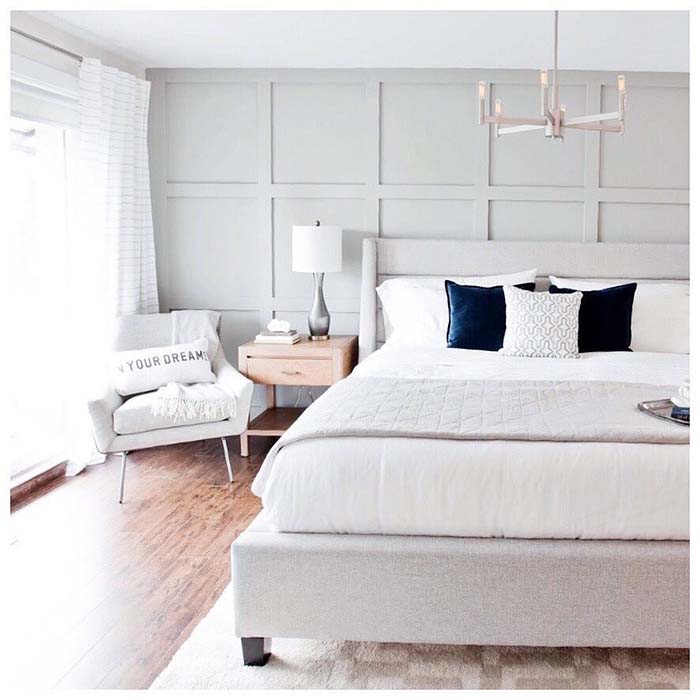
via instagram.com
Two lines of panels cover this all-white relaxation corner.
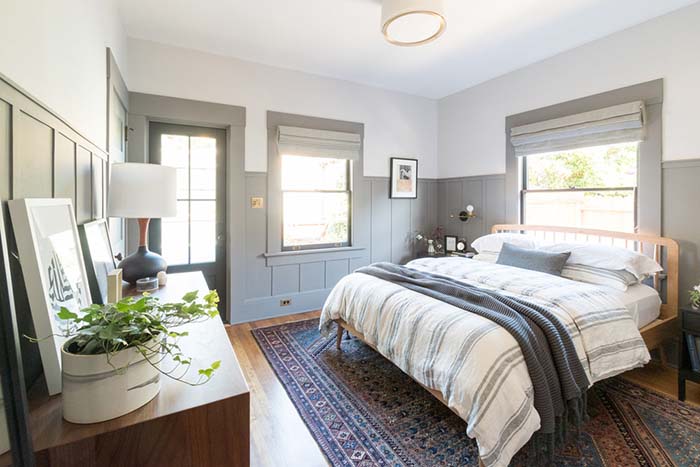
via thegoldhive.com
The grey color balances the huge windows to make this room both bright and relaxing.
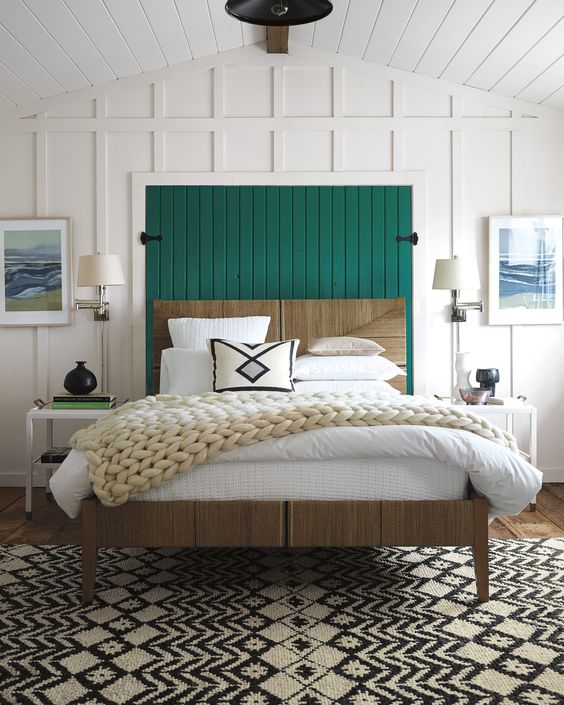
Wainscoting and green paneling that creates the illusion of a barn door is the accent in this master bedroom.
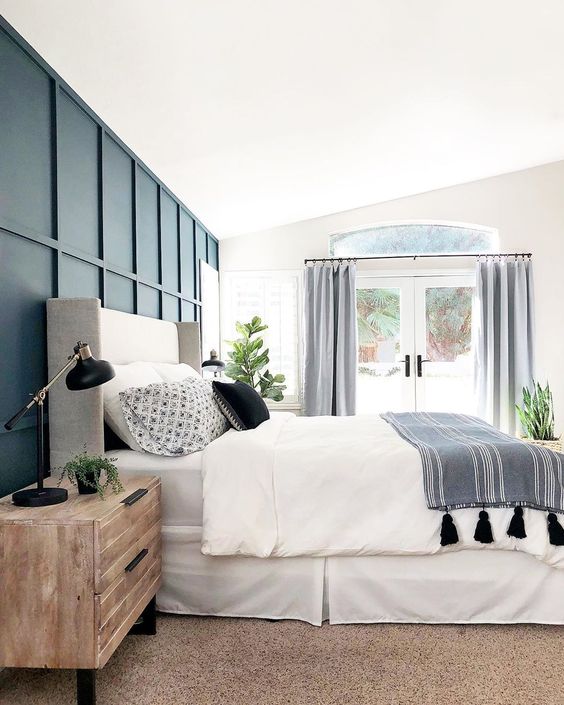
An interesting combination where the wainscoting only covers one of the walls of a room.
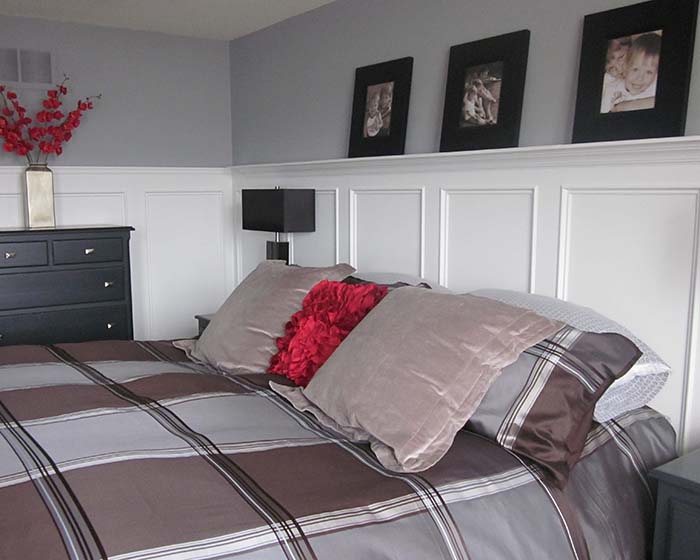
Simple flat panels are for people who want to live in a traditional home, but still prefer a simple style.
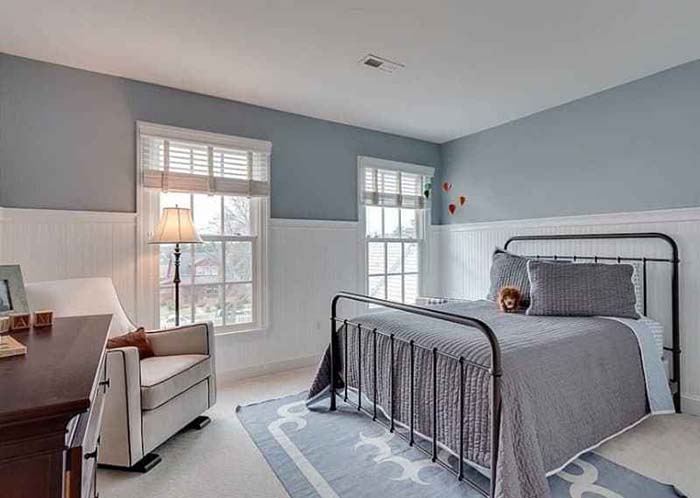
via zillow.com
Beadboards add a sense of texture and character to a room.
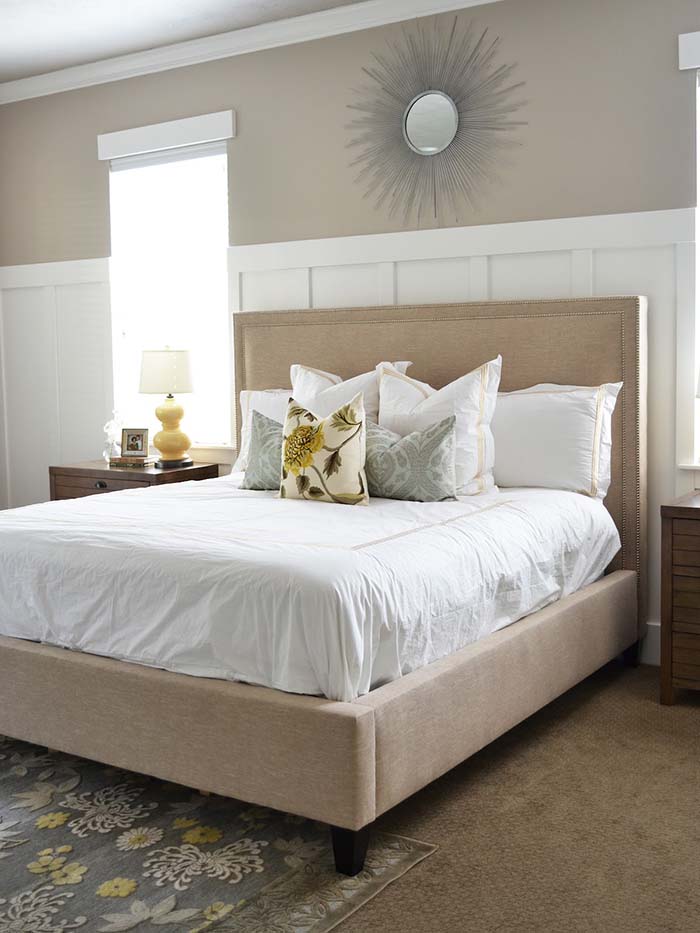
via thefamilyroomdesign.blogspot.com
Notice how the windowsills are the same height as the wainscot in this cleverly designed bedroom.
6. Living Room Wainscoting Ideas
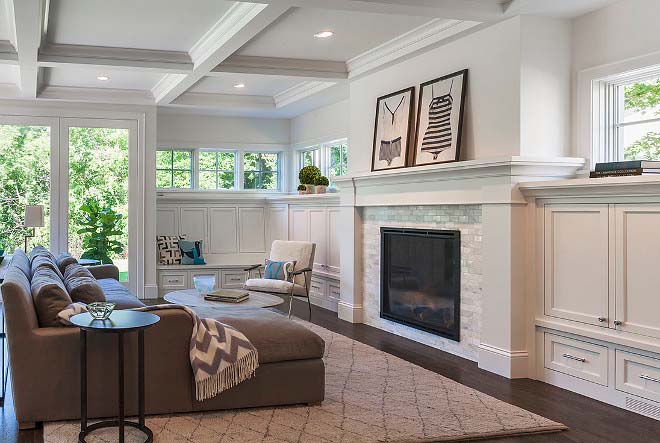
The high windows and pillows create a cozy reading space in this otherwise brightly lit room.
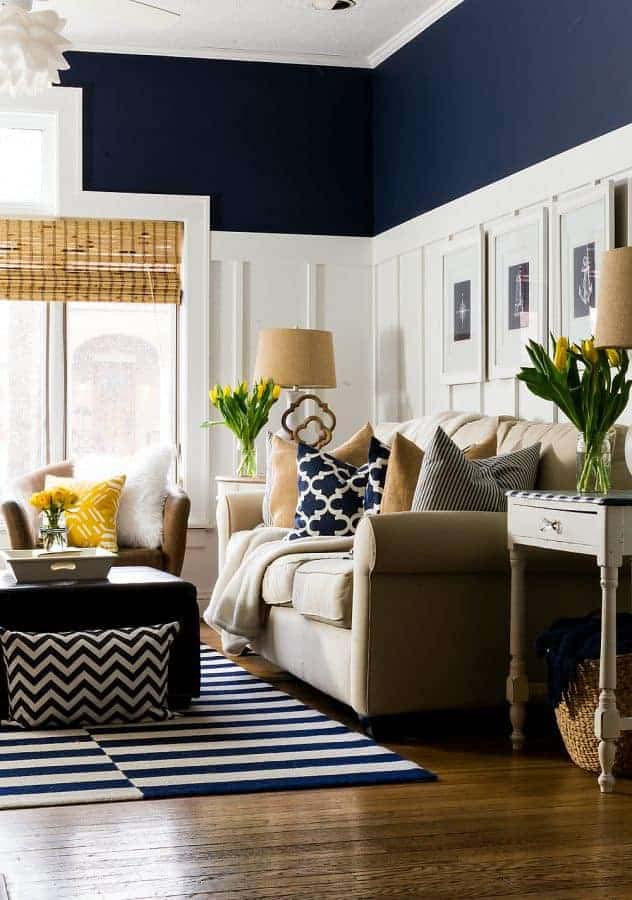
Some interior architects believe wainscoting height should be directly linked to windowsill height.
White wainscot has a calming effect in this living room.
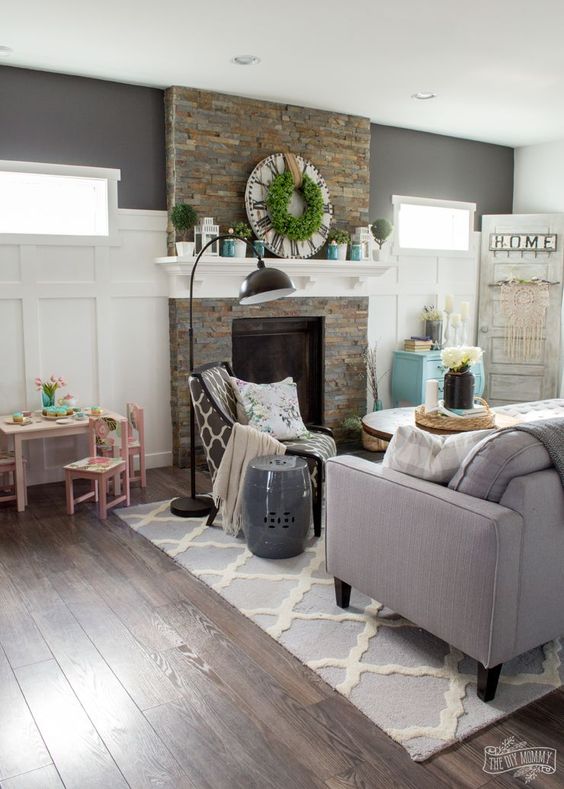
The higher paneling of this room makes it look like the roof is actually higher up and there is more space.
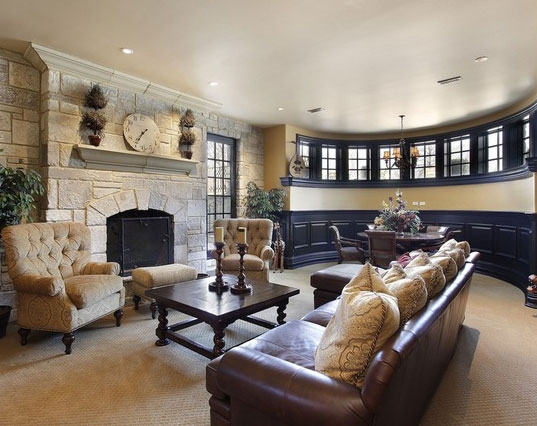
If you haven’t see a curved wainscoting ideas, it’s because they are more difficult to install.
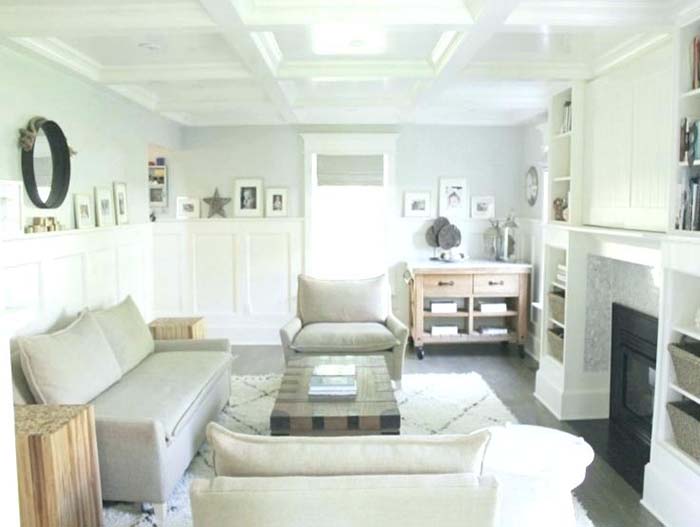
The palette in this room easily wouldn’t have worked as well without the wainscot.
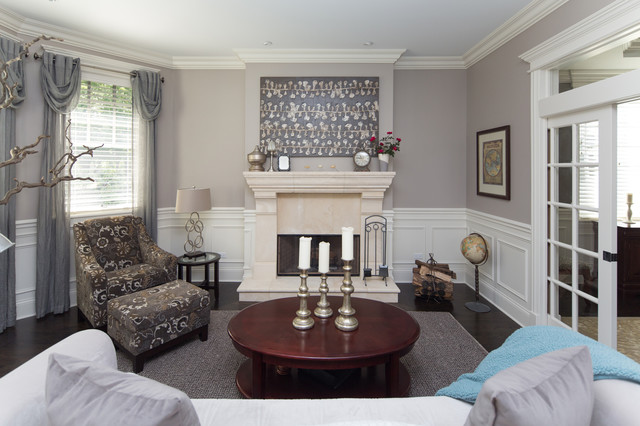
Traditional room with wainscoting that accented on the mahogany table.
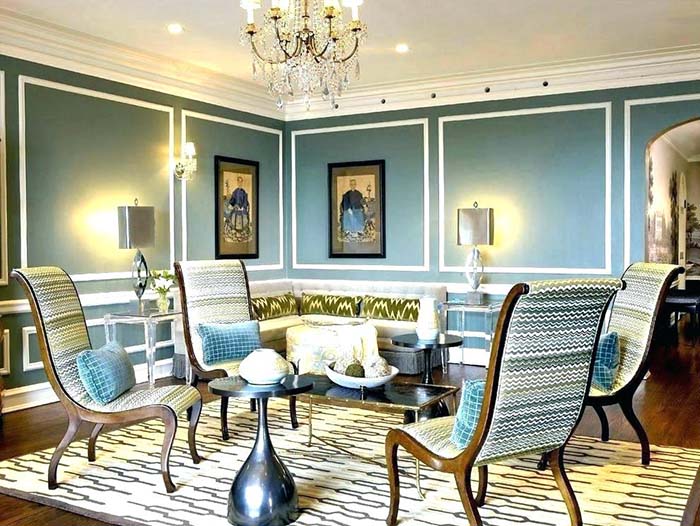
An old-world living room with a modern stylish touch.
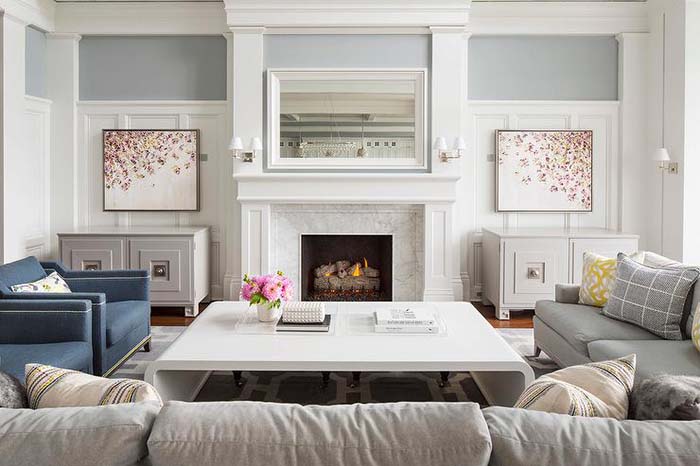
Wainscoting and wall seem interchangeable in this living room.
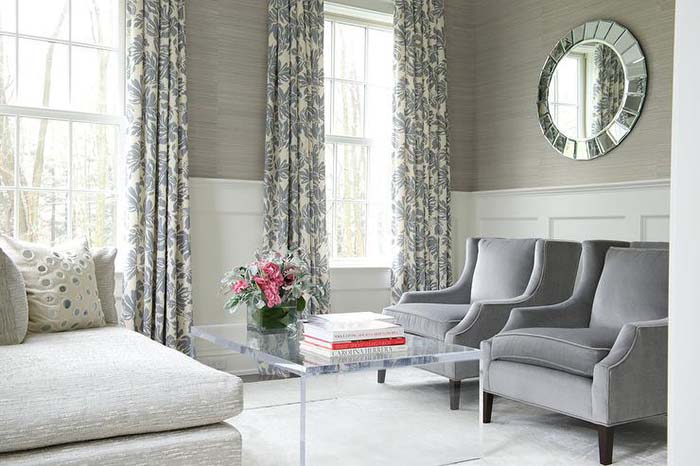
via janebeiles.com
The curtains are a fine touch, which matches both the paneling and the walls.
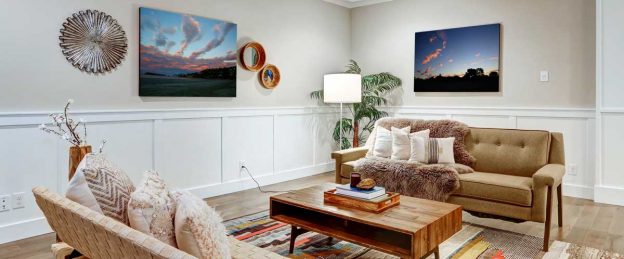
A fresh and spacy room with lighter colors.
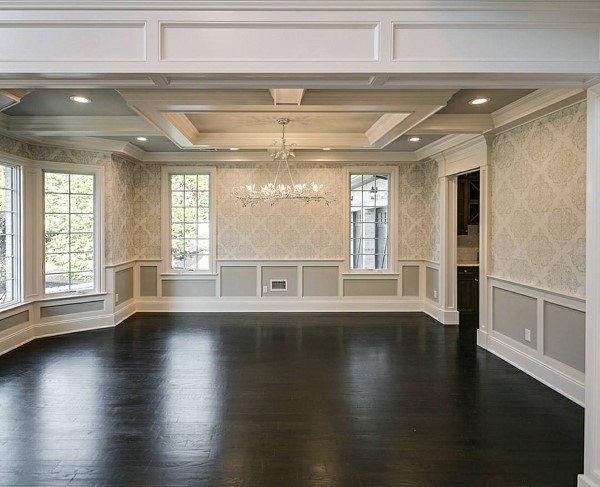
A rare example where the wainscoting goes lower than 1/3 of the wall.
7. Hallway Wainscoting Ideas
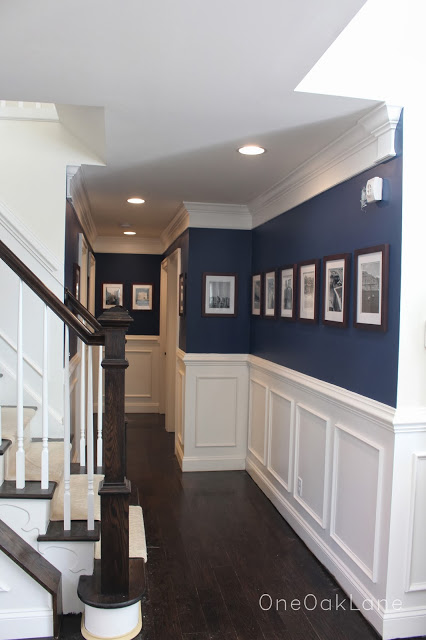
via hometalk.com
Classic flat panels in this dark navy painted hallway.
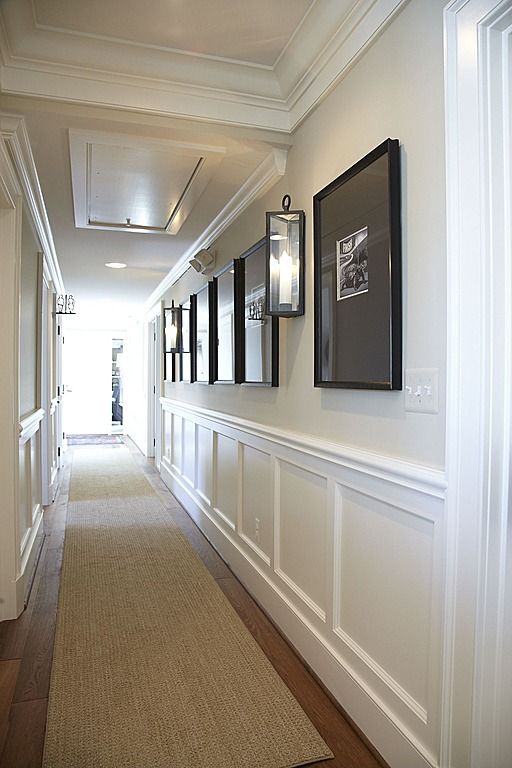
via zillow.com
Wainscoting helps add character to an otherwise empty hallway.
Don’t be afraid to choose an all-white interior for your hallway. It will never go out of style.
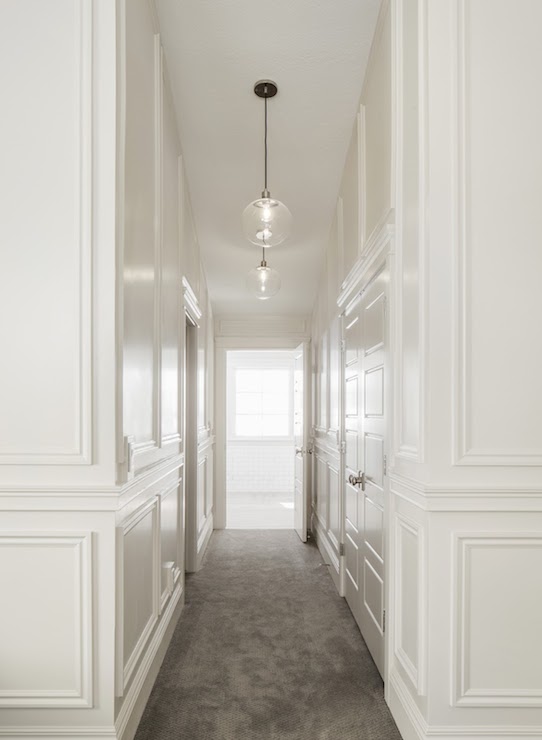
via whiteandgolddesign.blogspot.com
The panels add a sense of texture to the plain flat surfaces even if they don’t bring in additional colors.
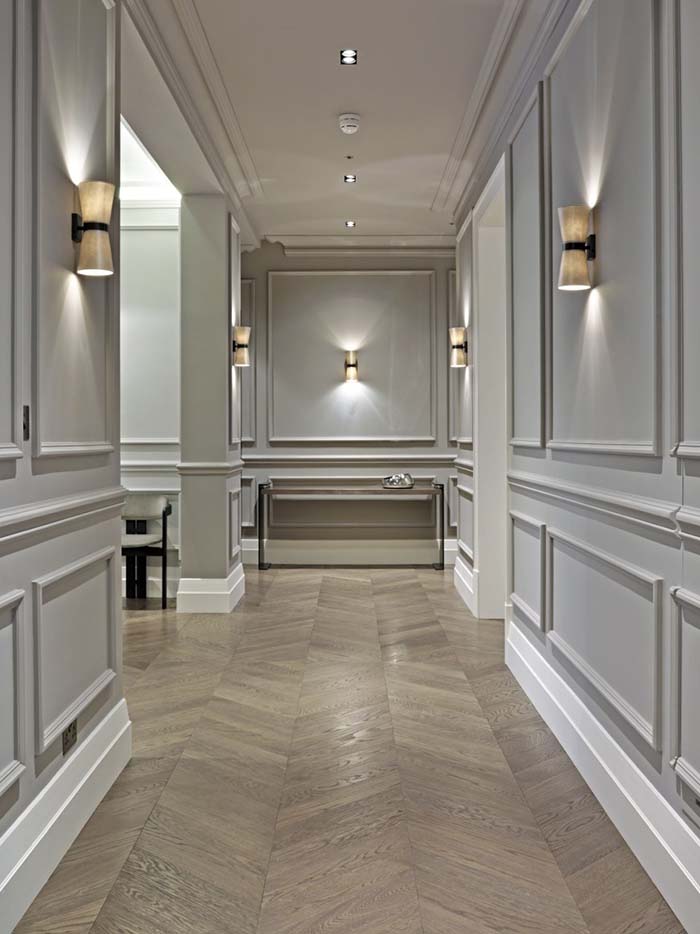
via janicereyesphotography.com
This home combines different sets of panels to cover the whole height of the hallway walls.
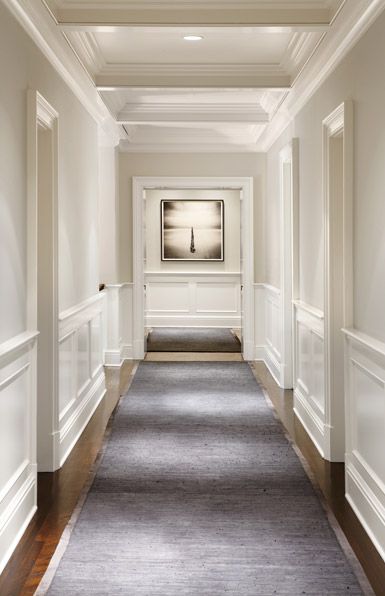
Wainscots are almost a must for long lean hallways. This one here says “Welcome to the White house”.
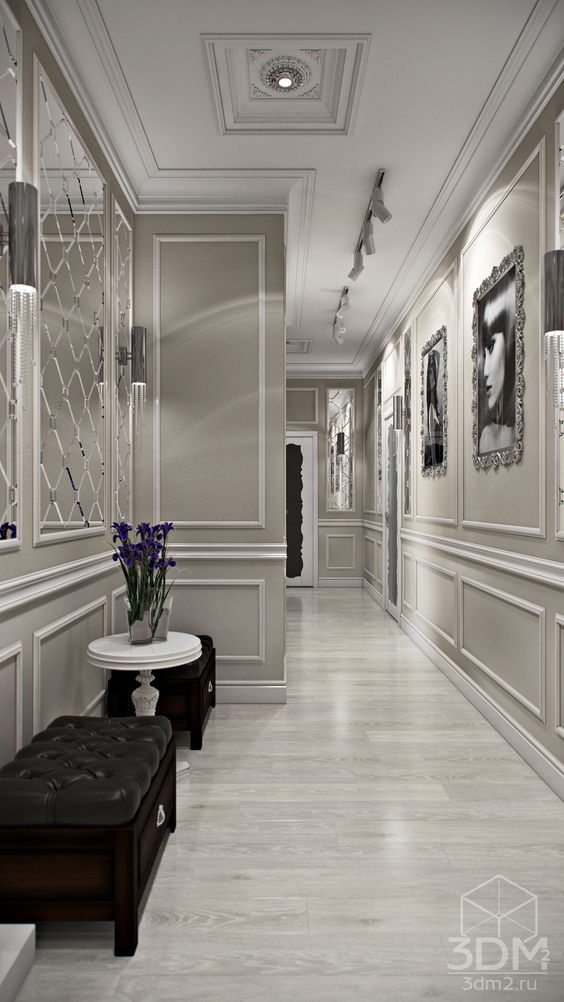
A high-fashion feel in this grayscale lobby.
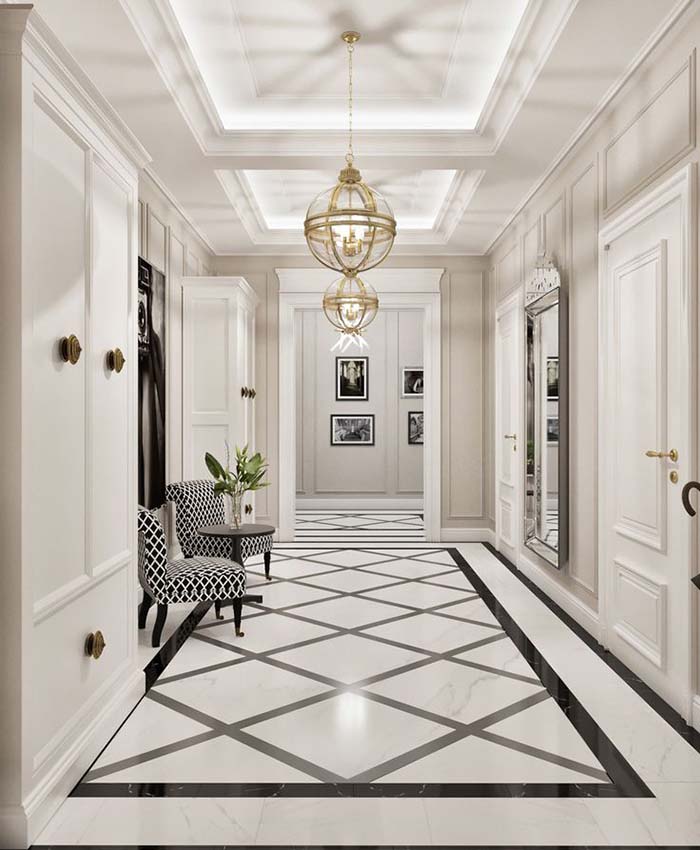
via behance.net
Black & white, and something a little extra.
8.Garage Wainscoting Ideas
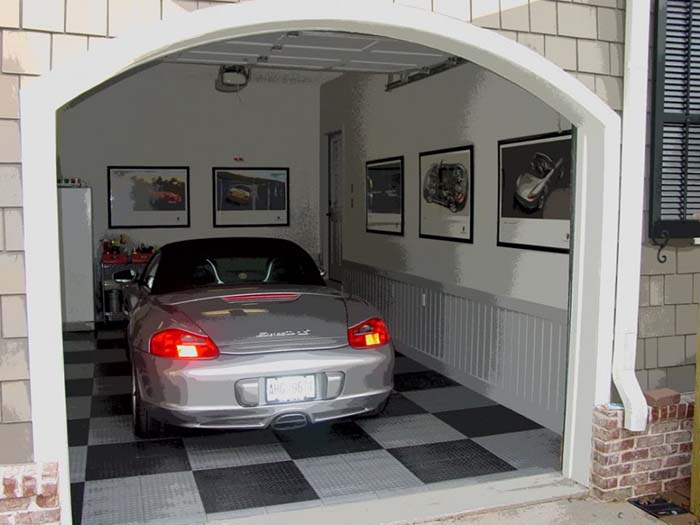
via gogoigood.net
Garages are normally not the tidiest of places, but this one strives to add some nice aesthetics with the help of wainscoting.
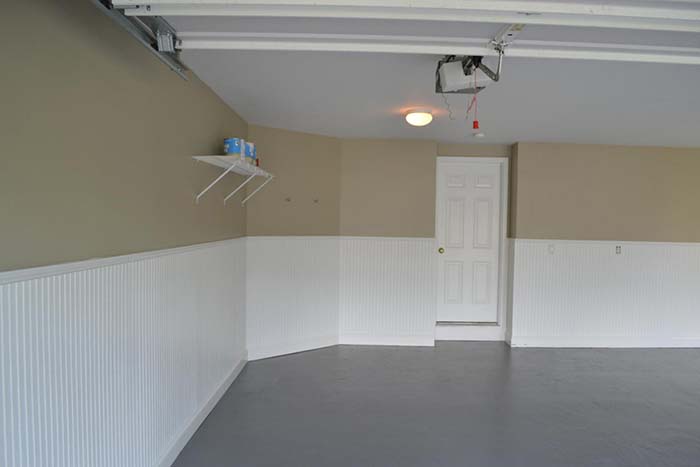
Everybody loves extra garage space. The beadboard here not only creates it, but also protects the walls.
Creative Wainscoting Styles
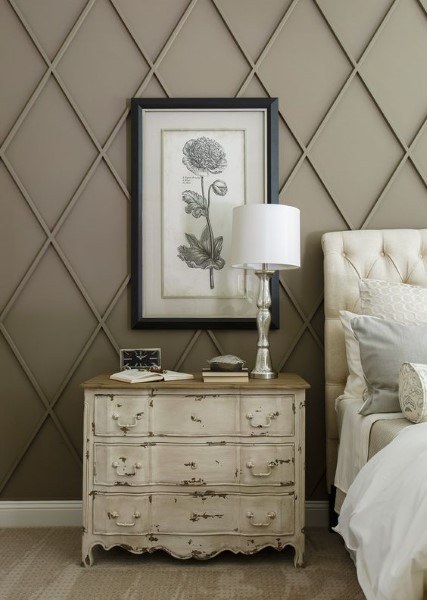
Nobody said geometry only consists of rectangles.
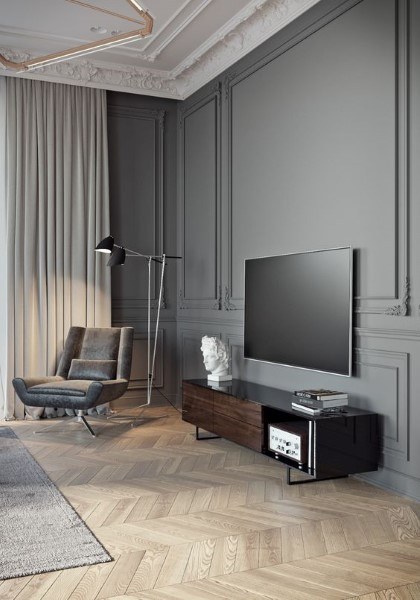
Vertical and horizontal panels mix nicely, provided you have enough space.
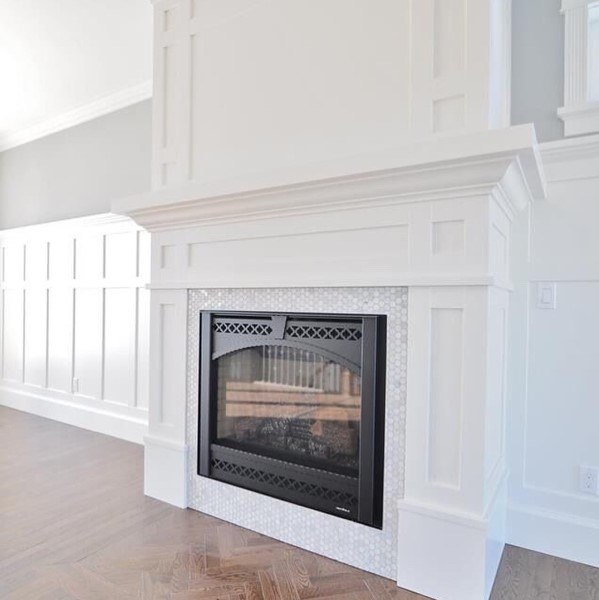
A fireplace is more than a piece of furniture. So why not showcase it.
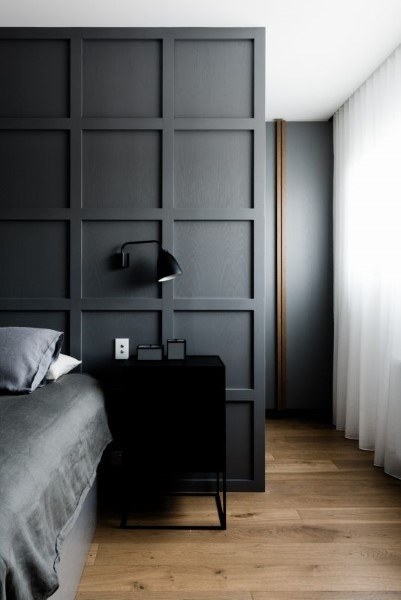
The dark colors here add a slick and classy feel.
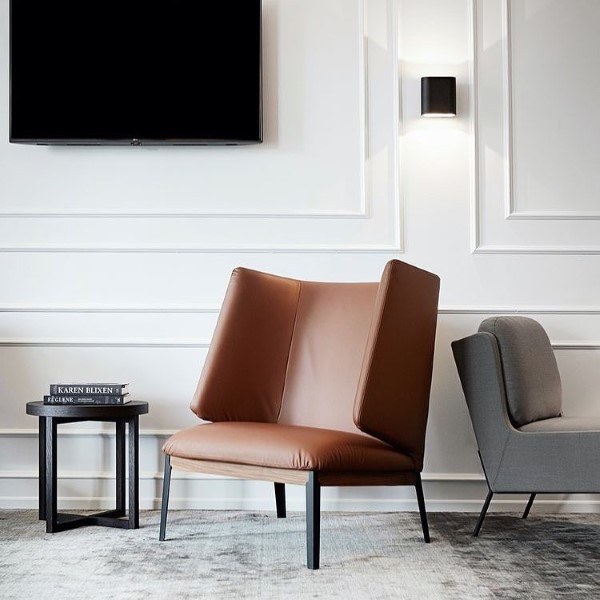
Huge panels, which cover the whole wall and are also smooth enough to reflect light back into the room.
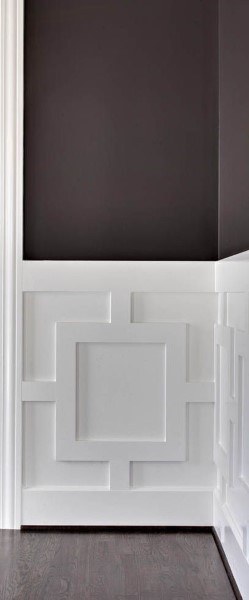
Creative wainscoting ideas will make you guests interested in your house.
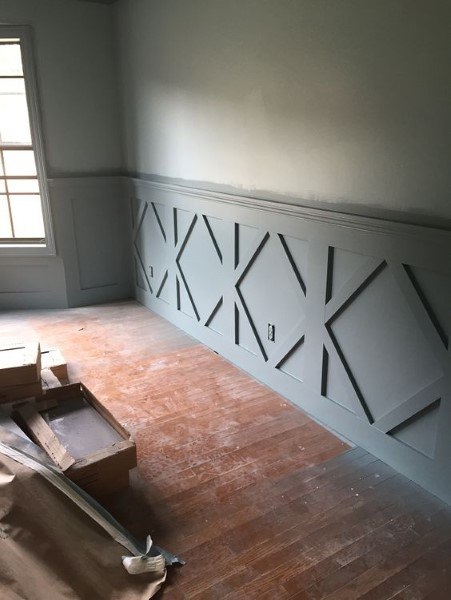
These room builders have their priorities straight.
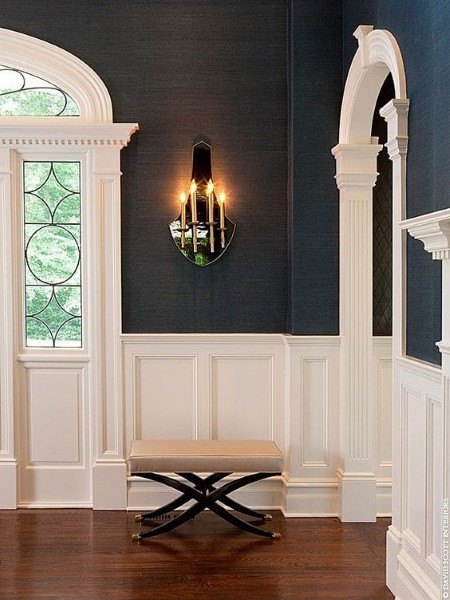
The arcs in this house are a huge hint the owner is a fan of classical style.
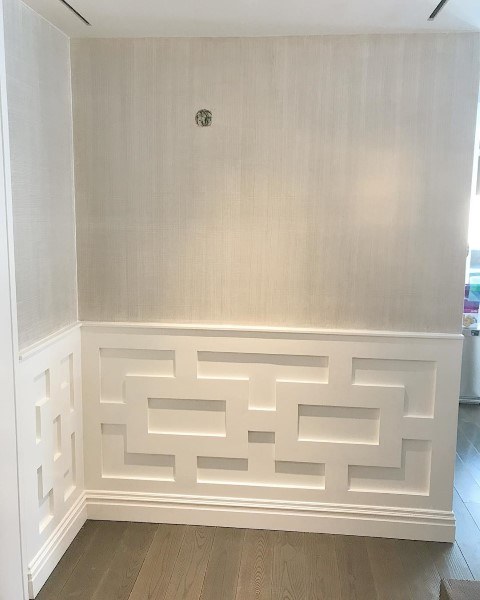
The wainscoting doesn’t have to stand out with its colors, sometimes unique shapes are all it needs.
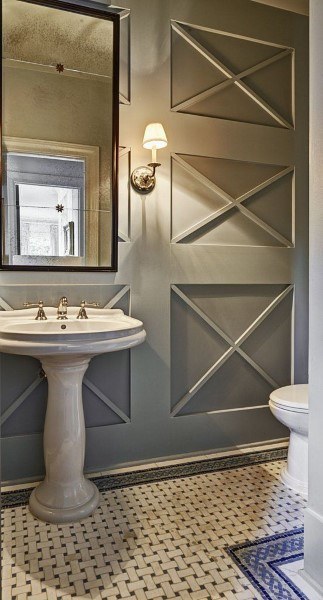
Some creative and interesting patterns in a stylish-looking bathroom.
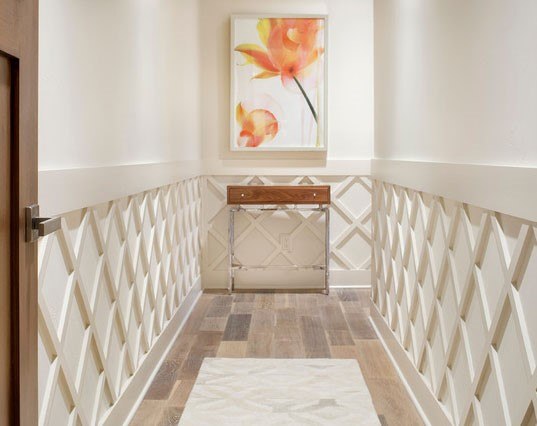
The raised battens here make the room feel much different and energetic.
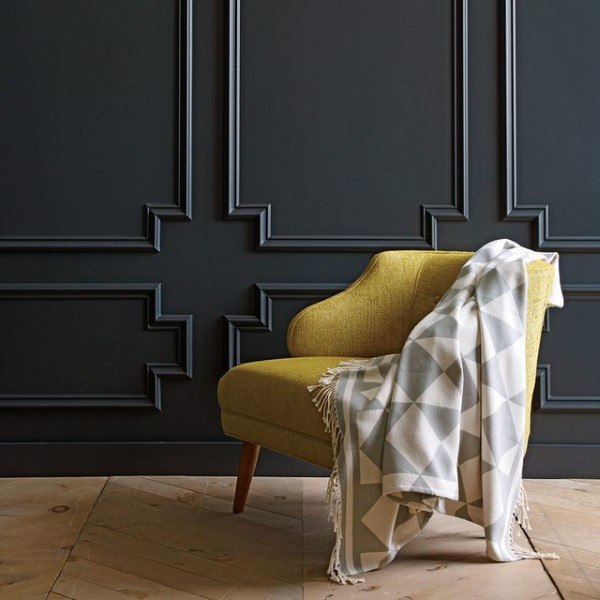
A creative project, which successfully hides the spots where separate panels touch.
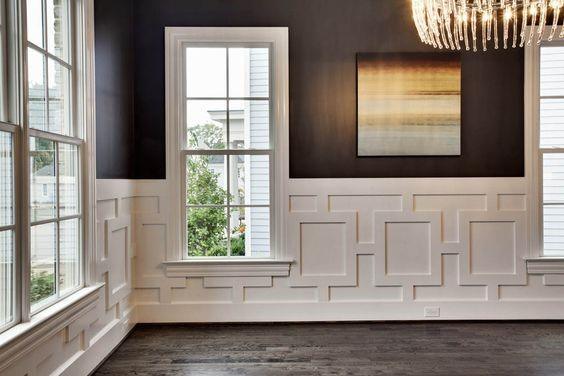
Creative styles of wainscoting stand out and are for people who are sure they want something different for their homes.
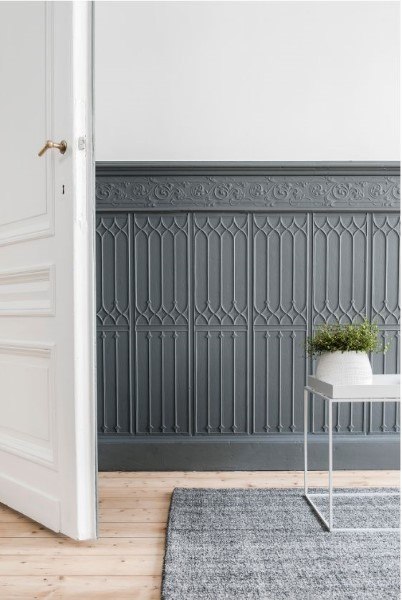
Detailed carefully crafted wainscoting may cost extra to make, but that is one of the reasons it makes a strong impression and could increase the price of your home a lot.
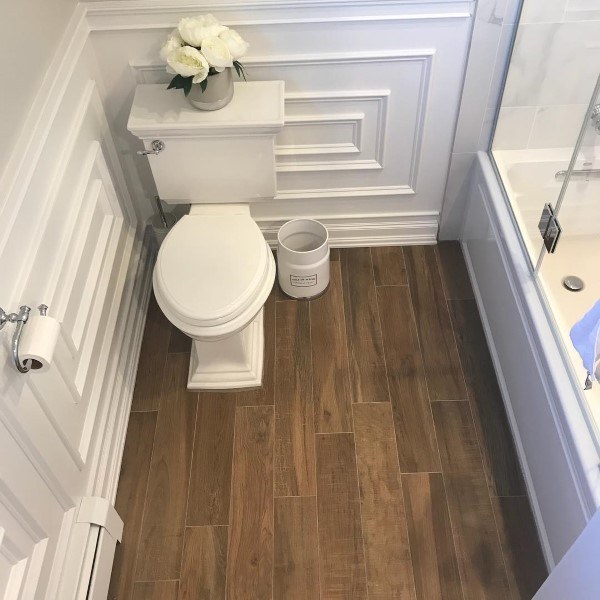
Extra geometrical elements make the space look busy, but also add style when closed in a smaller room.
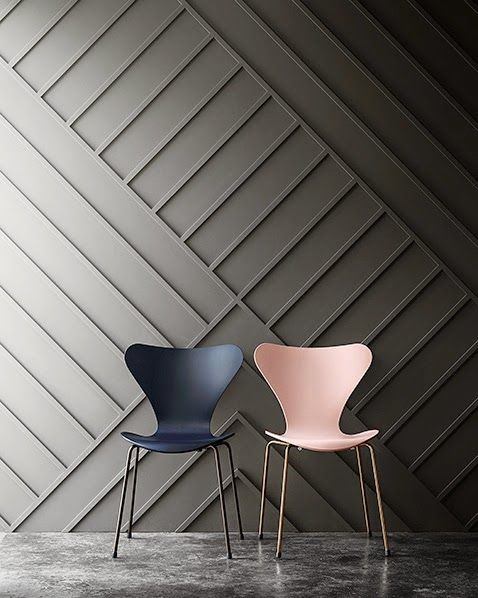
Wainscoting can be an art form by itself. The interweaving sets of panels here look mesmerizing.
Wainscoting Paint Ideas
Most popular paint color for wainscoting and paneling is white or at least some of its variations and shades – snow white, cream white, muted white, etc.
Light gray, light blue and beige could also work great if you can combine them with the overall interior design – like wall colors, furniture and ceilings.
If the area is well lit you can opt for darker colors like – dark gray, brown, navy blue or even black.
Choosing the best paint color for your wainscoted walls is very important , so it’s a good idea to plan about colors as early as possible in order to save time and money if something goes wrong later in the project.
Conclusion:
Even though wainscoting isn’t a must to make a room livable, you can use it as a means to add splendor or simply a sense of style and tradition to your boring walls.
I hope this article answered your questions and gave you some useful insights and beautiful wainscoting examples, to help you gather ideas for a future home transformation.

